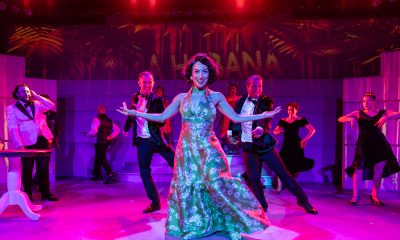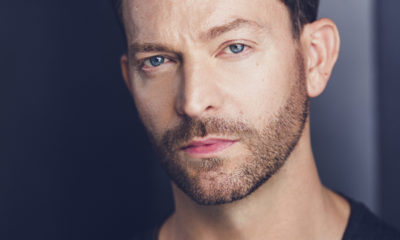Arts & Entertainment
Marriage of convenience?
Lunt-Fontanne hit farce revived in darker translation
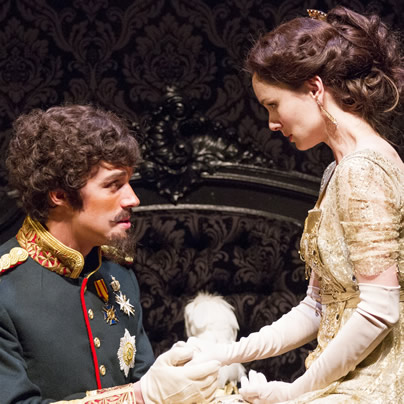
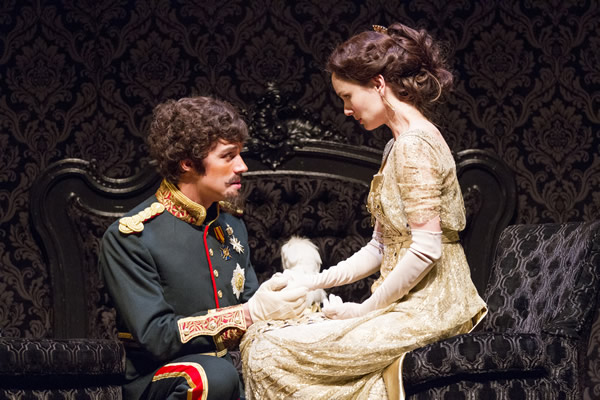
Finn Wittrock and Sarah Wayne Callies in ‘The Guardsman,’ in production now at the Kennedy Center. (Photo by Scott Suchman; courtesy Kennedy Center)
‘The Guardsman’
Through June 23
John F. Kennedy Center for the Performing Arts
$54-$95
202-467-4600
kennedy-center.org
For more than 50 years, legendary husband/wife acting team Alfred Lunt and Lynn Fontanne charmed audiences with their onstage sophistication and offstage happy marriage. But little did fans know that the English-speaking world’s most famous theatrical couple was a union sprung more from ambition than passion. Theirs was one of the all-time, great lavender cover-ups.
Lunt and Fontanne began their post-nuptial collaboration on Broadway in 1924 with a hit production of Hungarian playwright Ferenc Molnár’s 1910 play, “The Guardsman.” It’s the story of an actor who disguises himself as the Emperor’s dashing guardsman to test the fidelity of his actress wife. The ’24 adaptation was light and breezy, well suited to the stars’ comedic style.
Now playwright Richard Nelson’s new and more discerning translation of Molnár’s original darker version is playing at the Kennedy Center’s Eisenhower Theater. Nelson’s script successfully blends the humor and pathos of its source, balancing the best of farce and drama. There’s the funniness of the handsome Actor (Finn Wittrock) hiding behind a Van Dyke beard, wild wig and nonspecific Mitteleuropa accent as he woos his own wife. But there’s also the frustration felt by the Actress (Sarah Wayne Callies) at being caught in a disappointing marriage, and the Actor’s insane jealousy that even extends to the noble guardsman he’s invented.
Set in early 20th century Budapest, the play is deceptively simple. Not long married, the young couple is already quarreling. Prior to marriage, she had a string of six-month-long affairs prompting the Actor to fear that their once passionate relationship has reached its expiration date. His solution is to tempt her with a new man of his own creation. Whether or not she goes for the forbidden fruit in counterfeit officer’s duds, the Actor reasons, he’ll know exactly where he stands.
Callies (best known as ill-fated Lori Grimes from TV’s “The Walking Dead”) is perfectly cast as the inscrutable thespian beauty and Wittrock is equally effective as her hot-blooded, tortured mate.
Witnessing the charade are the Actress’ longtime companion Mother played by the terrific Julie Halston who cut her acting teeth in downtown Manhattan performing in gay playwright Charles Busch’s campy classics. Curmudgeonly Mother despises her employer’s husband almost as much as her recent demotion to glorified housekeeper. Also on hand is the Critic (the wonderfully low key Shuler Hensley), the couple’s trusted friend who carries a long unreciprocated torch for the Actress.
Rounding out the excellent cast is Annie Funke as the green chamber maid, John Ahlin’s stage-struck bill collector and local favorite Naomi Jacobson as a tip-hungry opera usher.
Skillfully staged by Broadway’s Gregory Mosher, the action unfolds lucidly in just two days. The Actor claims he’s leaving town for work, but instead is using his makeup and acting skills right at home where he’ll pay a visit to wife at their home and later meet her at the opera. Even if farce isn’t your cup, it’s done incredibly well here.
And it’s a gorgeously designed production. John Beatty has created surroundings befitting a rich, young golden couple — their apartment is an Ottoman-influenced art nouveau bijou with strewn pillows, dark red walls, a secret door, low seating and hanging lamps. He’s also created a sumptuous opera box. Jane Greenwood has supplied the tall and slender Callies with a wardrobe of chic dressing gowns and a scene-stealing silvery number for the Actress’ evening out.
Could she seriously be fooled by a wig and phony accent? Or does she know it’s her husband all along? He’ll never know, nor shall we. But that’s all part of the fun and it makes for good post-show chatter.

WorldPride 2025 concluded with the WorldPride Street Festival and Closing Concert held along Pennsylvania Ave., N.W. on Sunday, June 8. Performers on the main stage included Doechii, Khalid, Courtney Act, Parker Matthews, 2AM Ricky, Suzie Toot, MkX and Brooke Eden.
(Washington Blade photos by Michael Key)
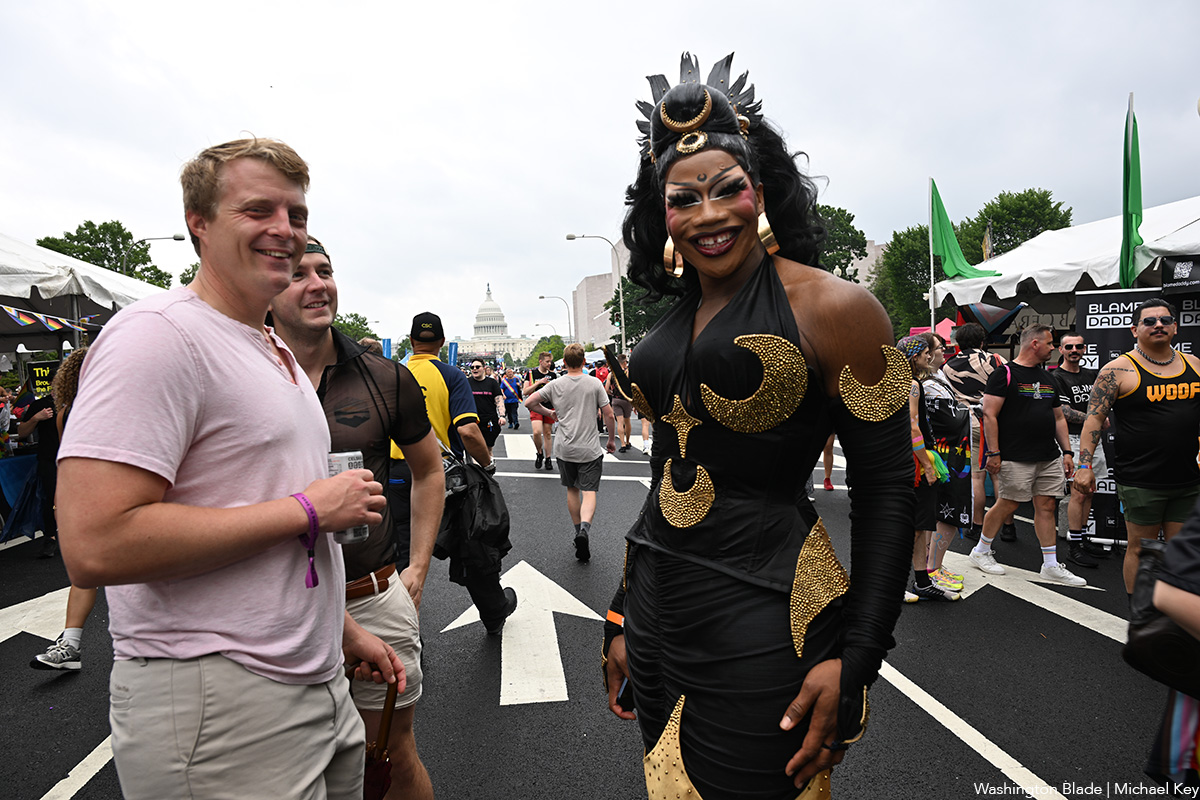

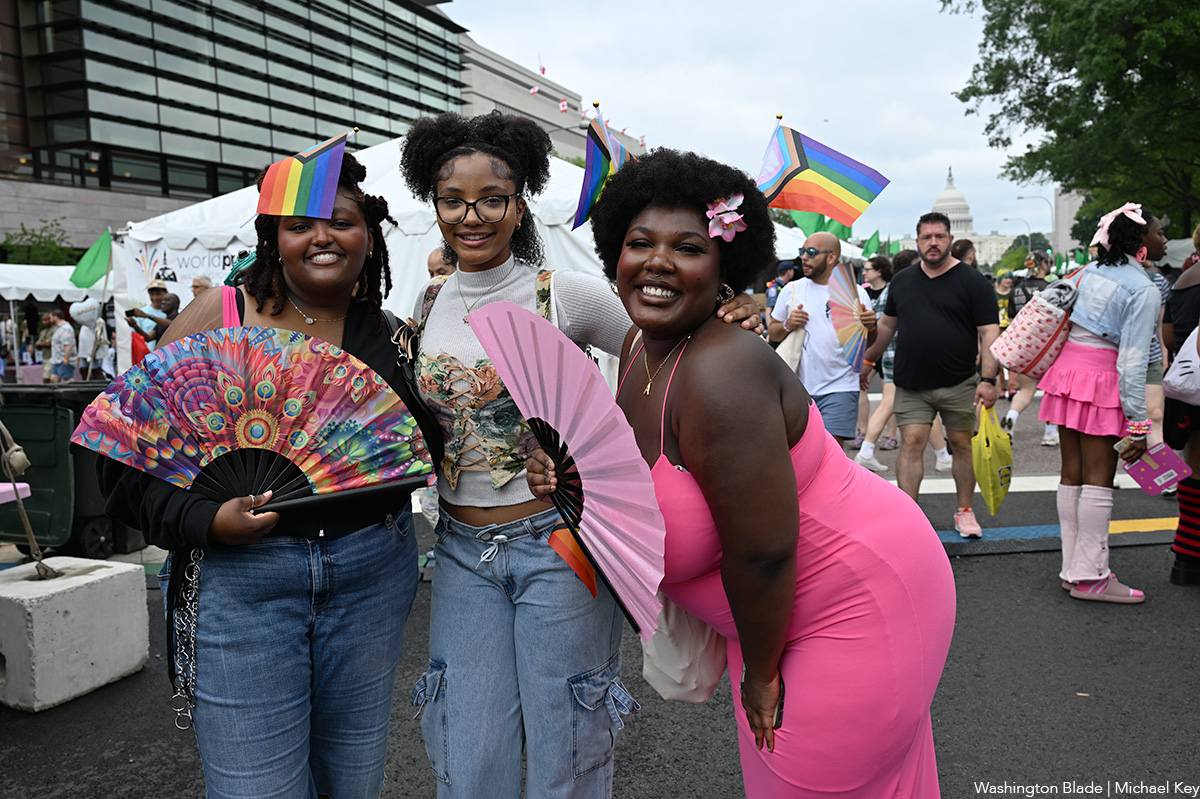
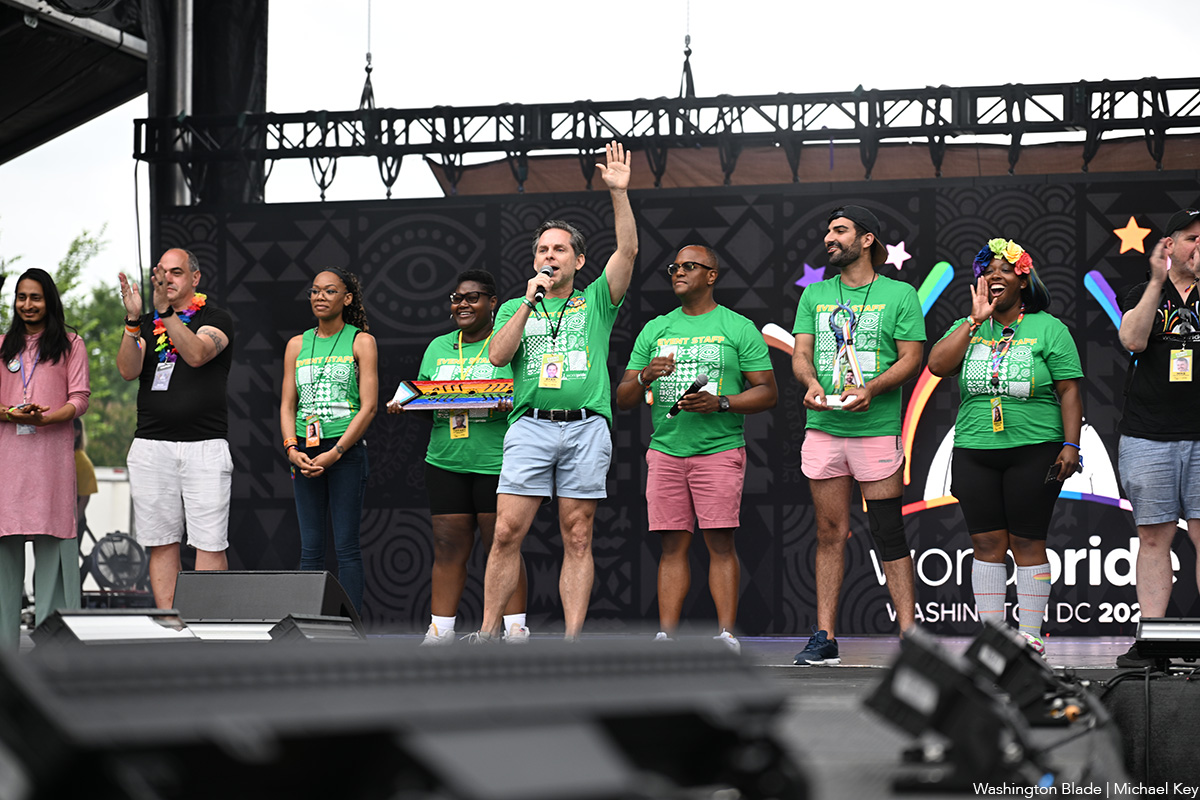

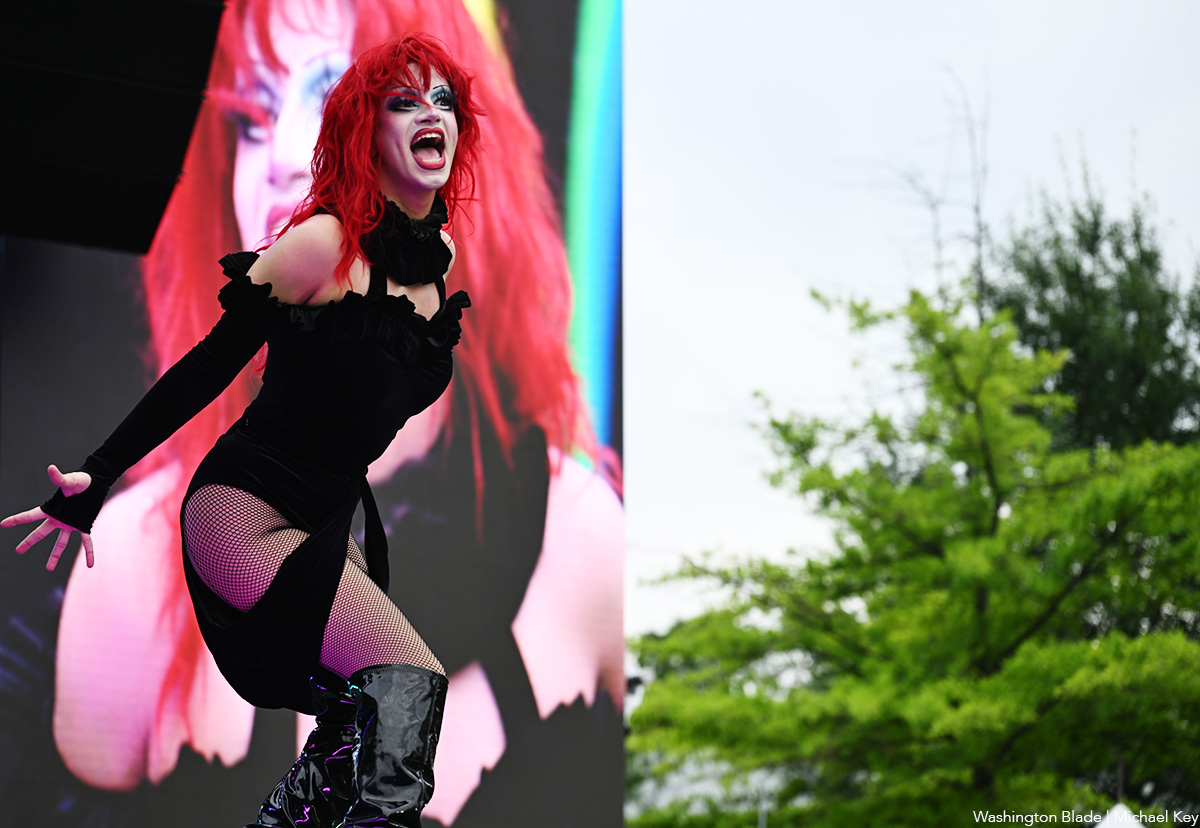
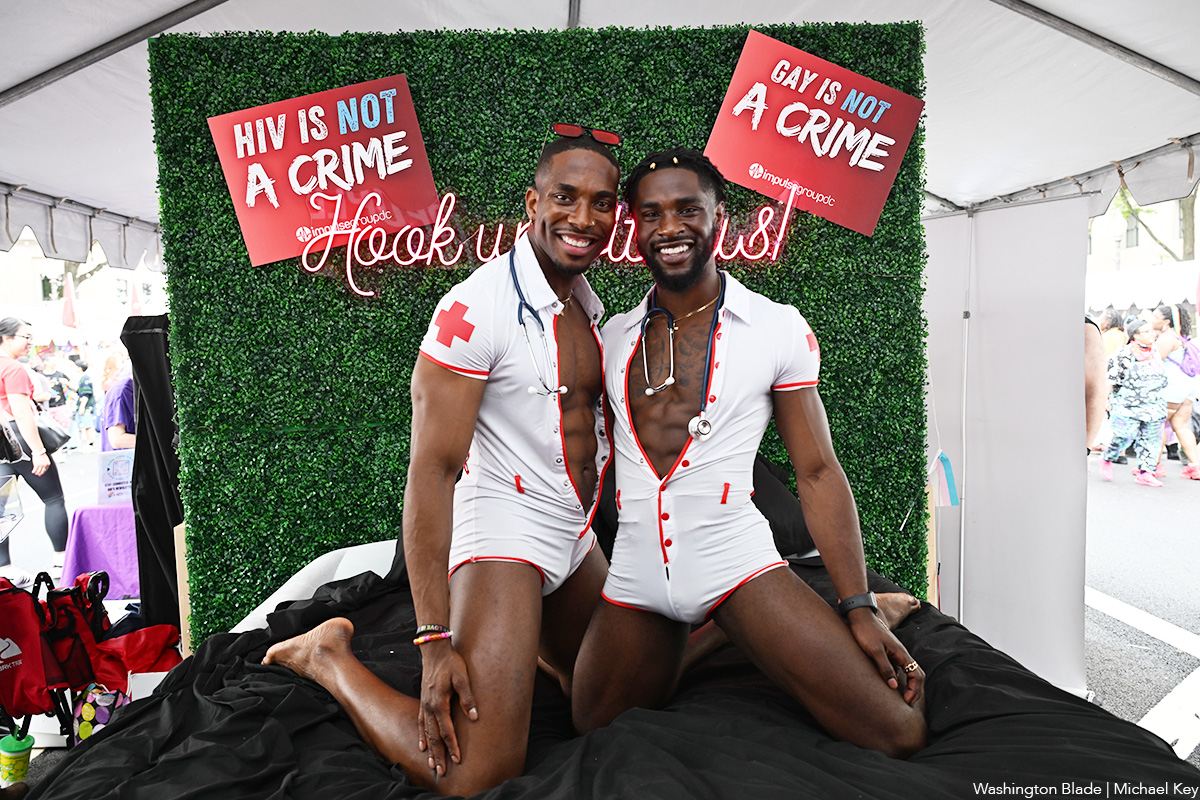
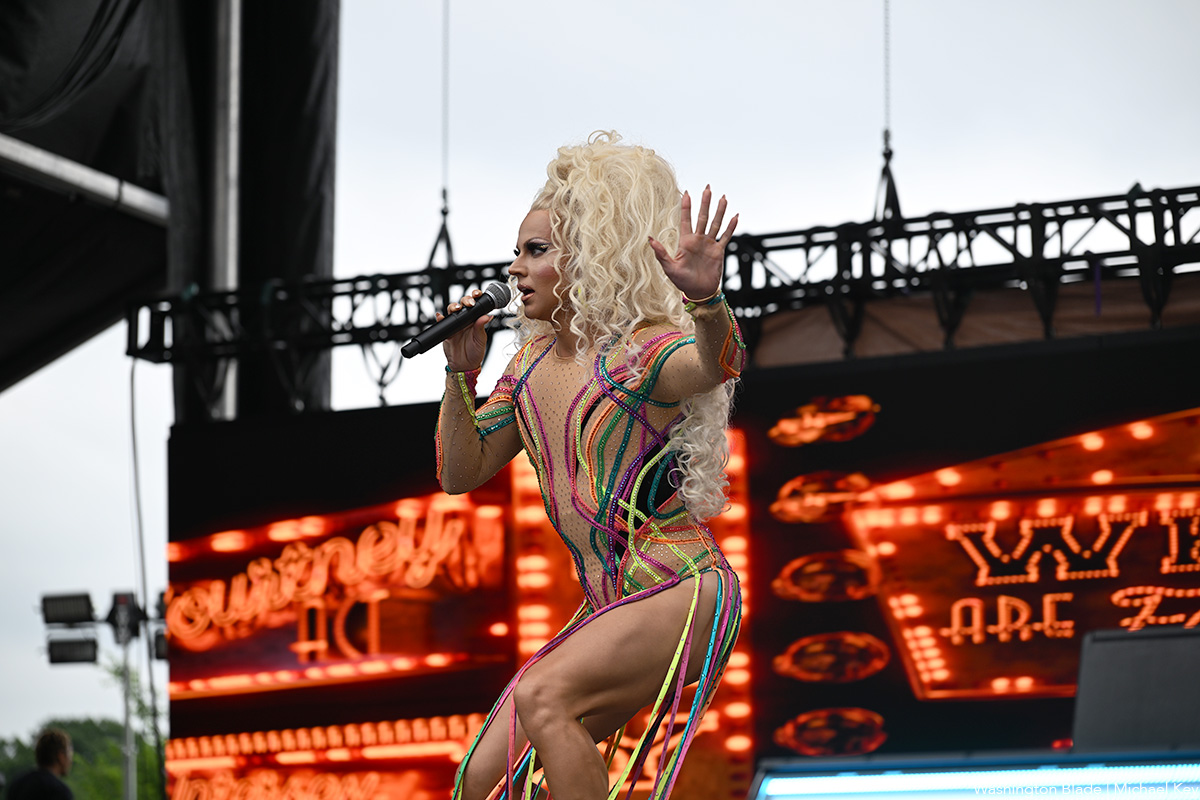

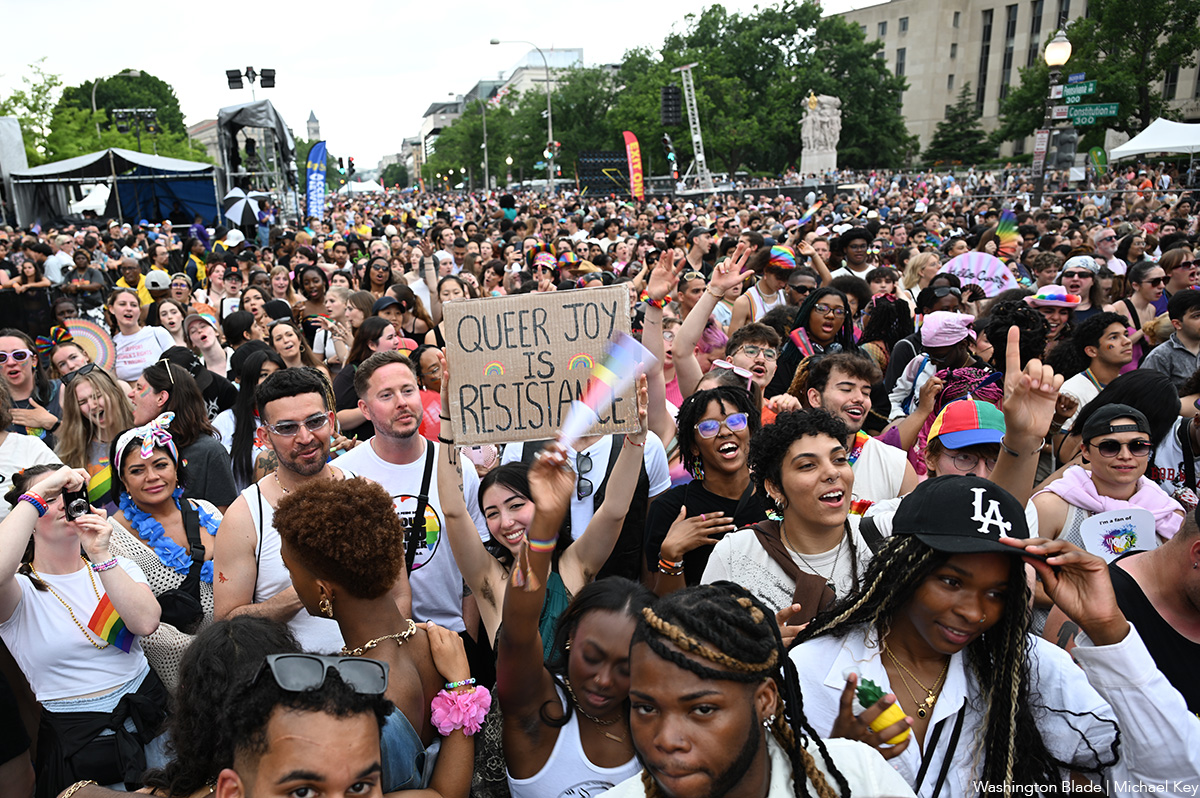

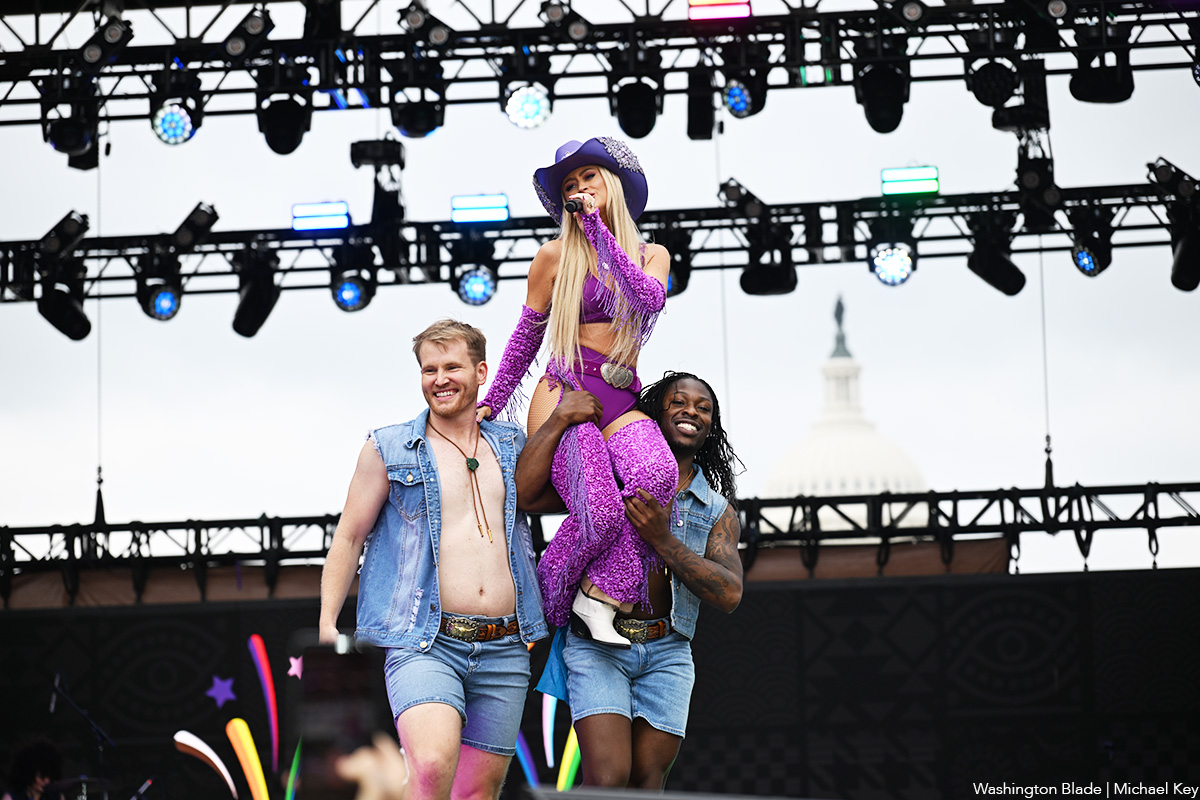
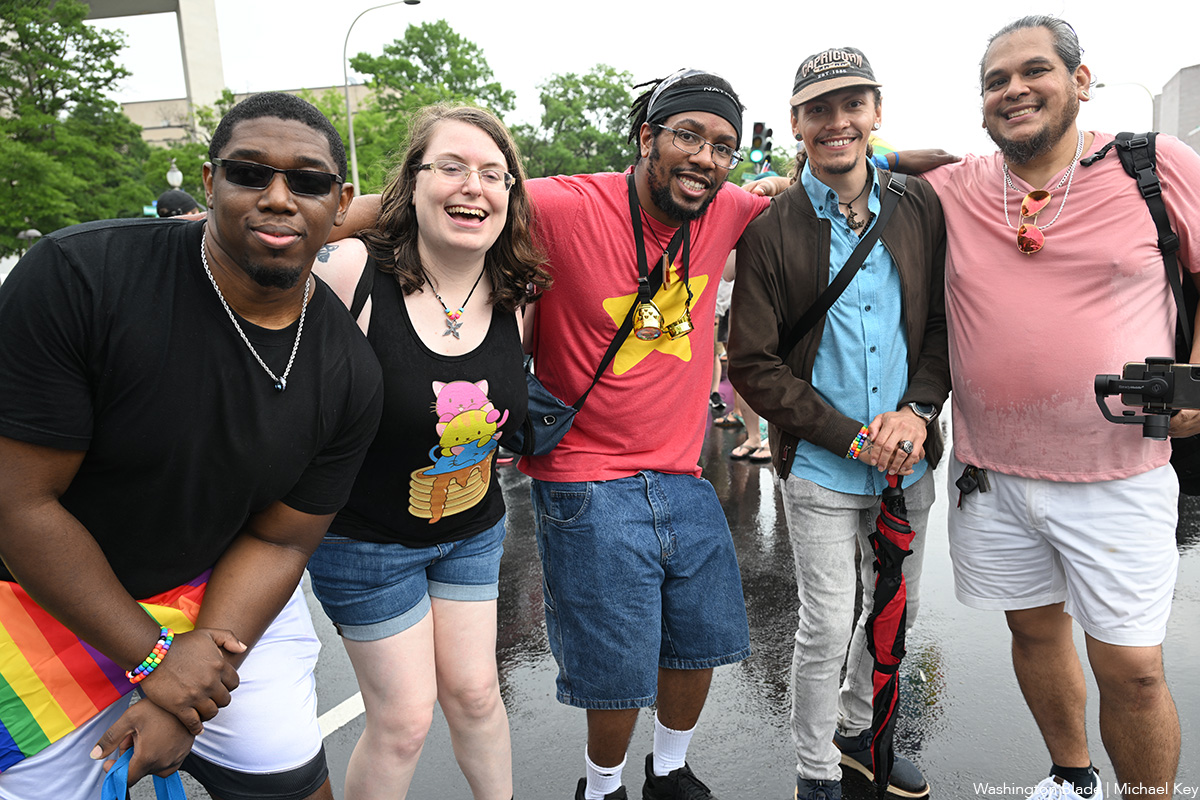
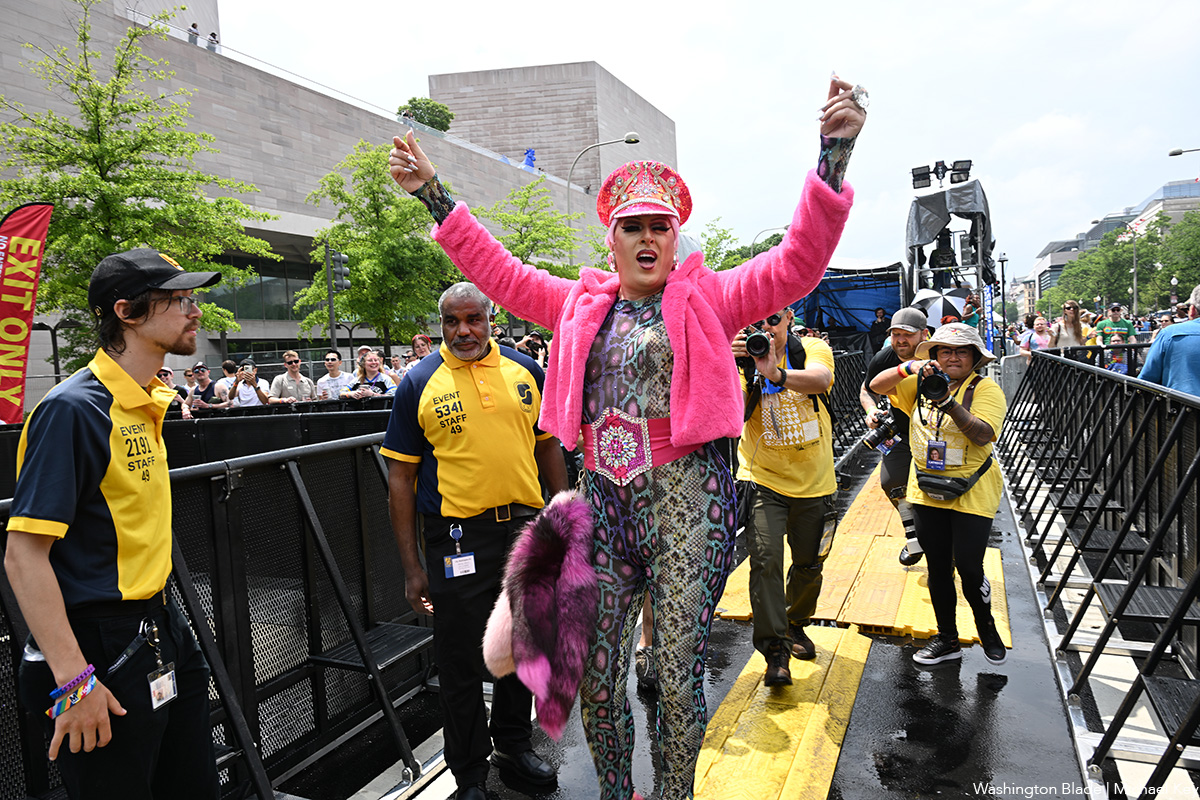











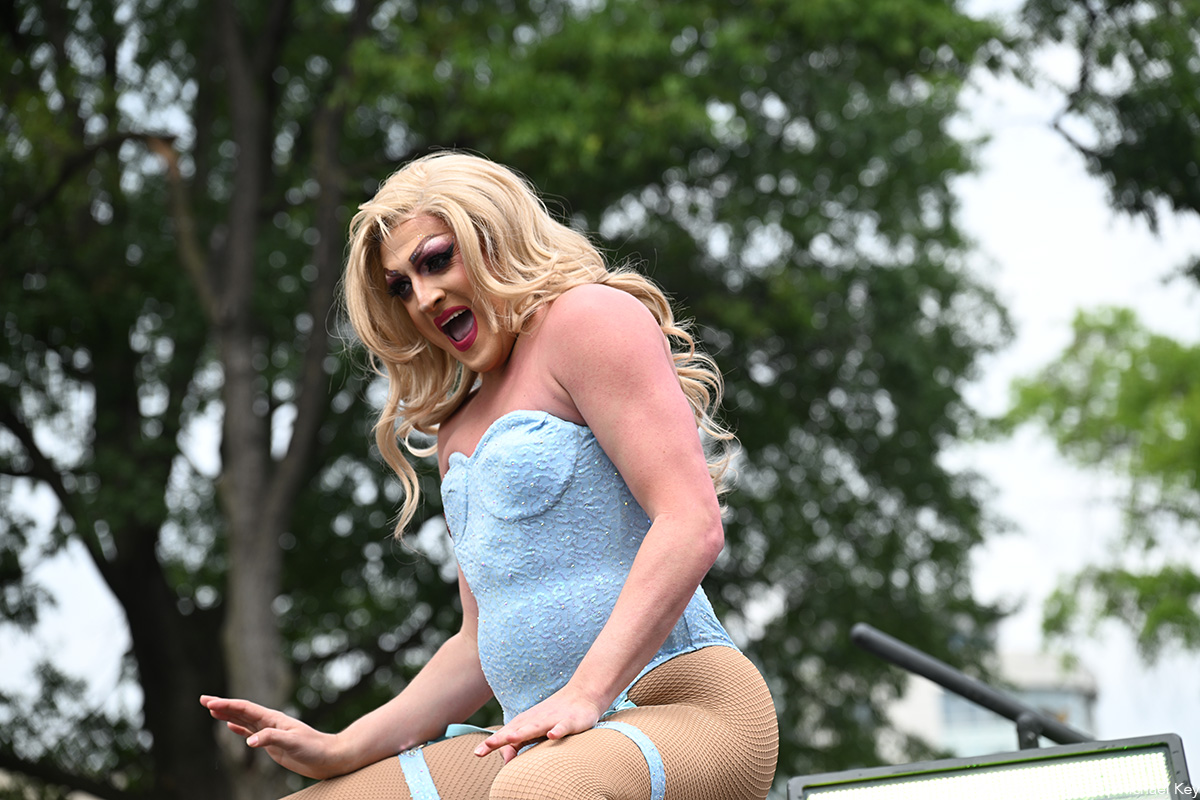

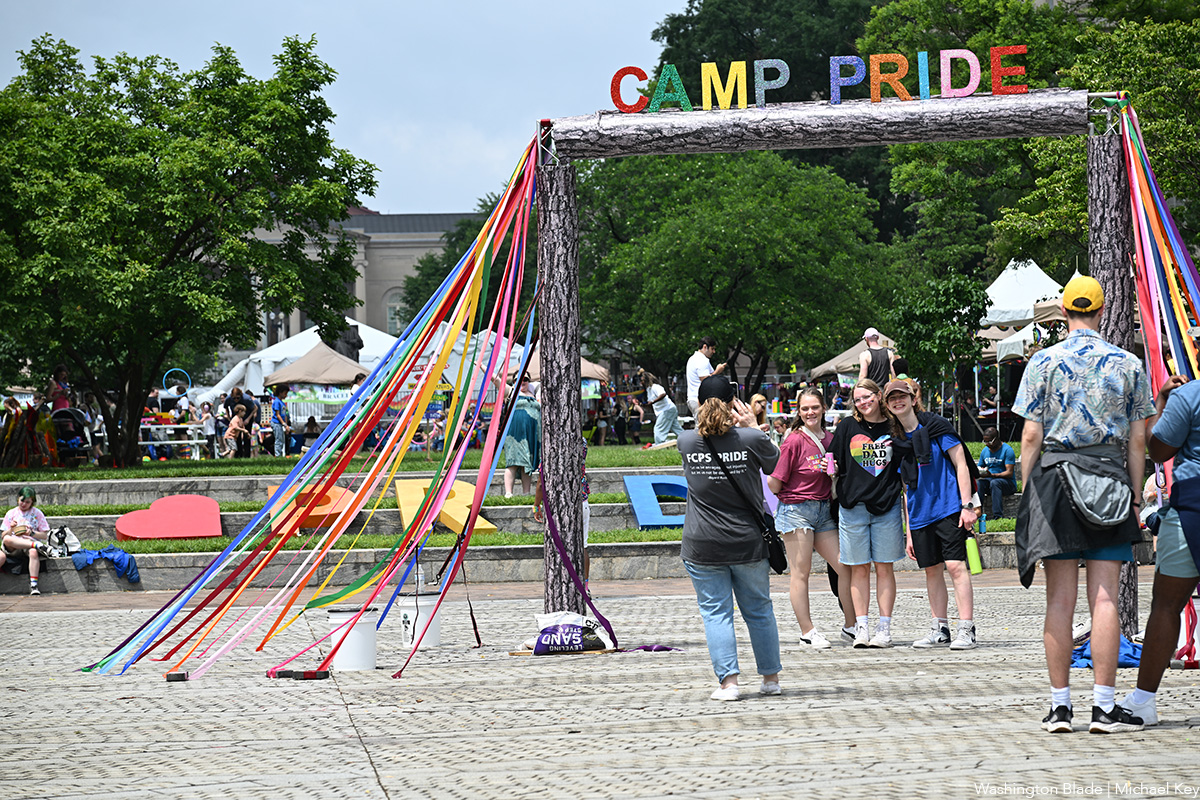

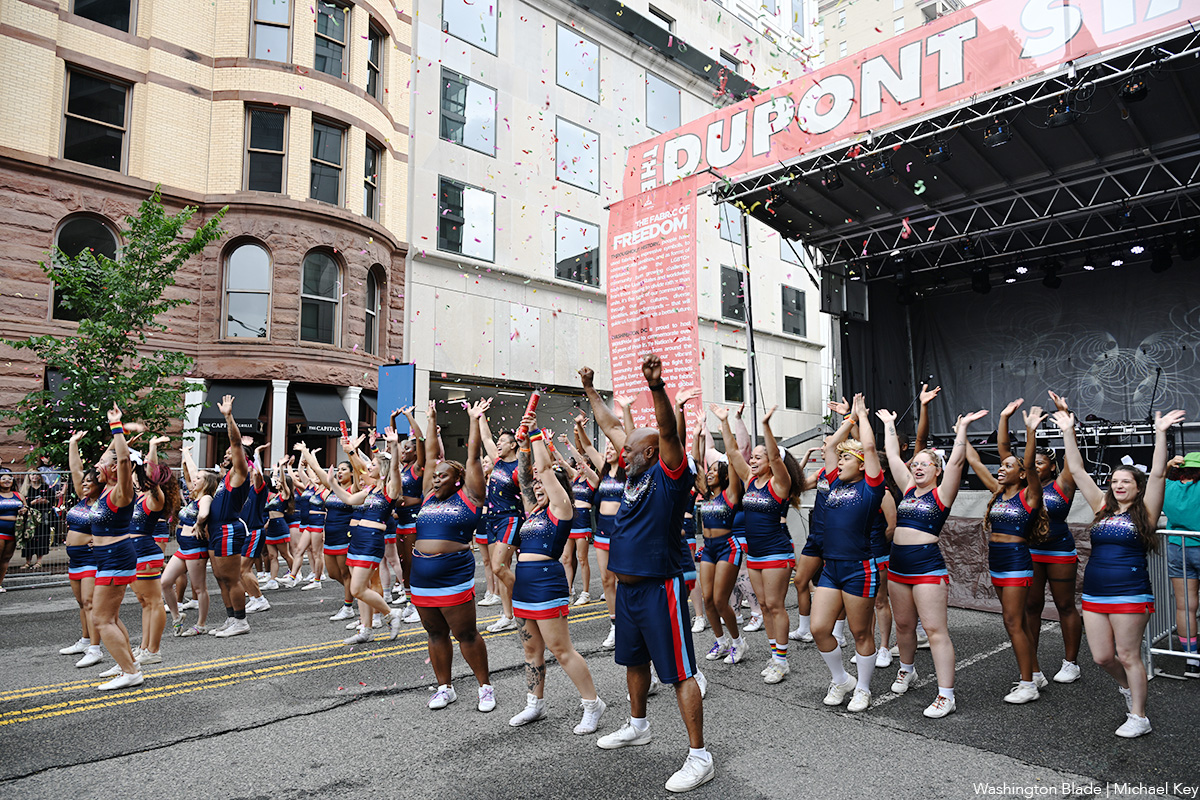

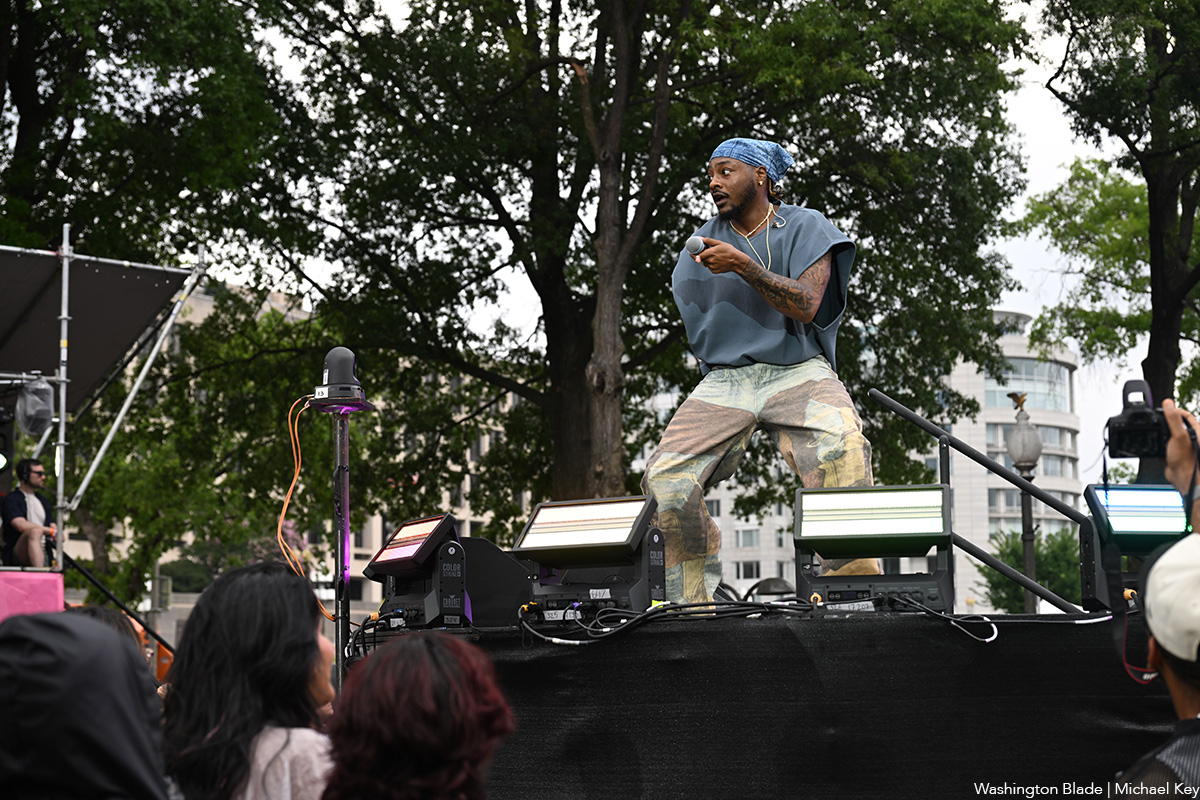

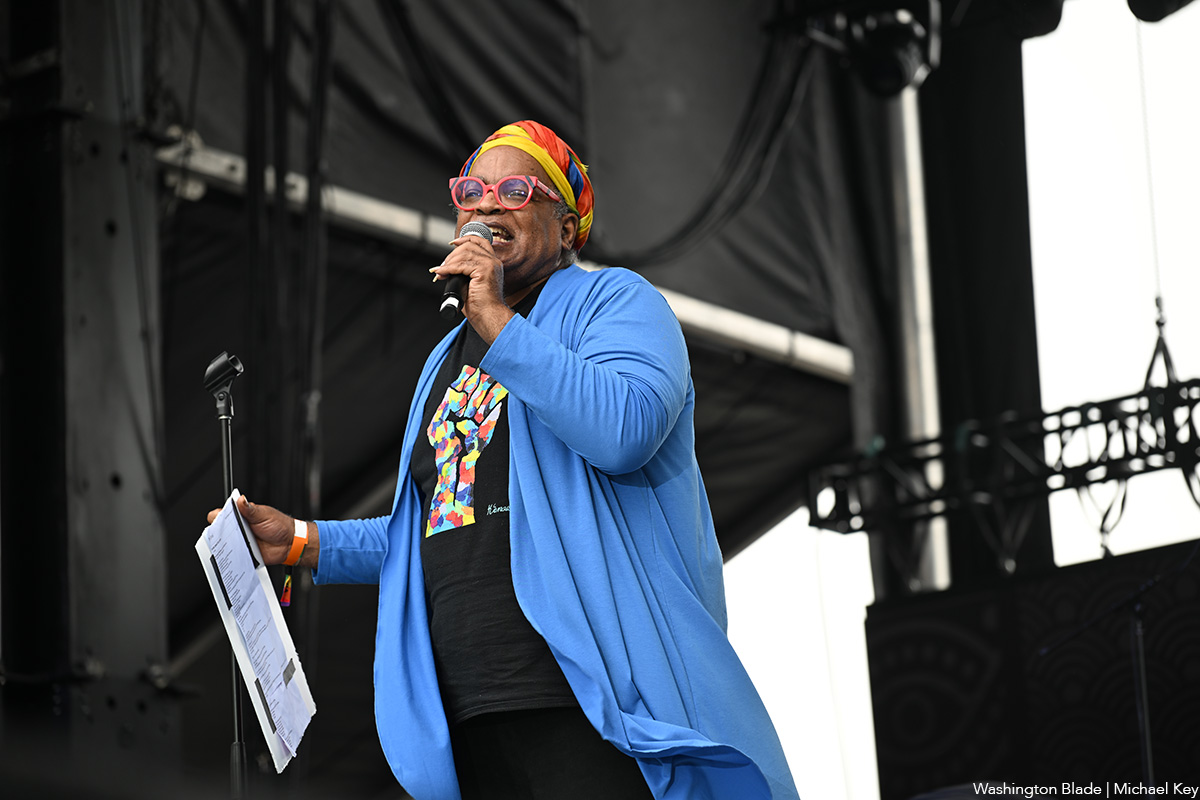
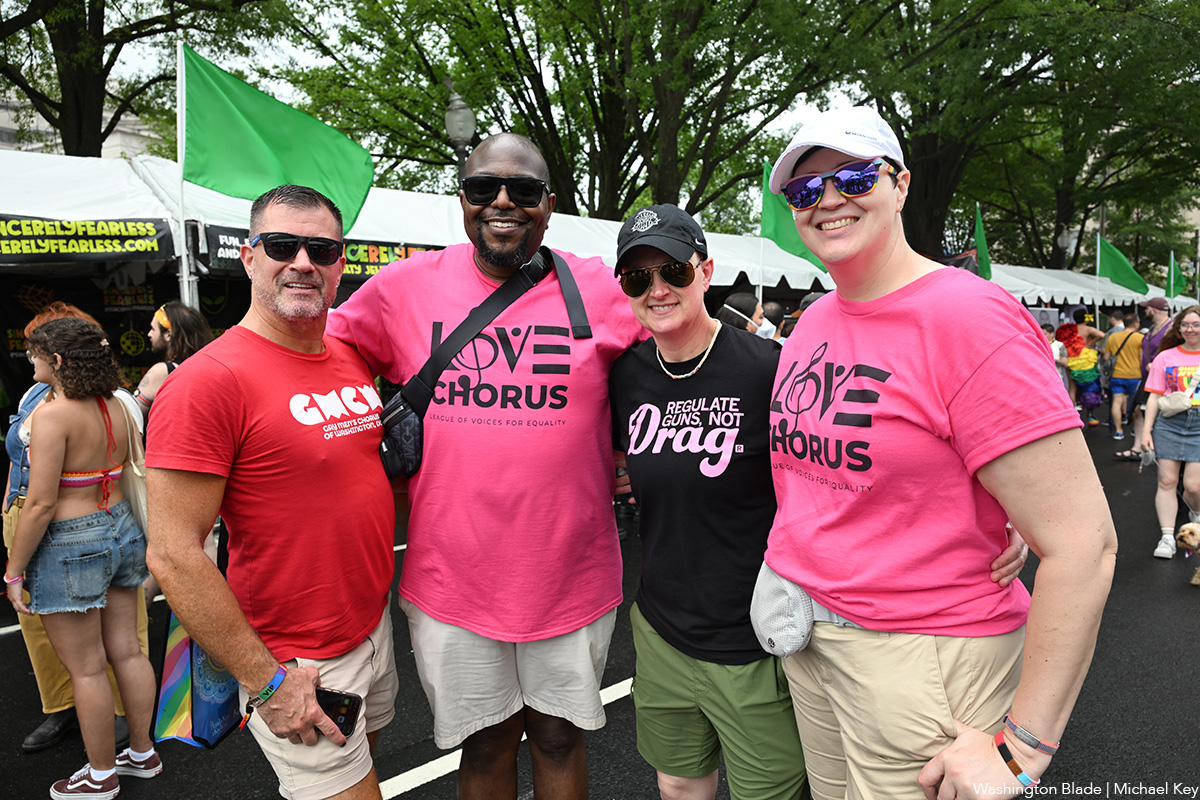

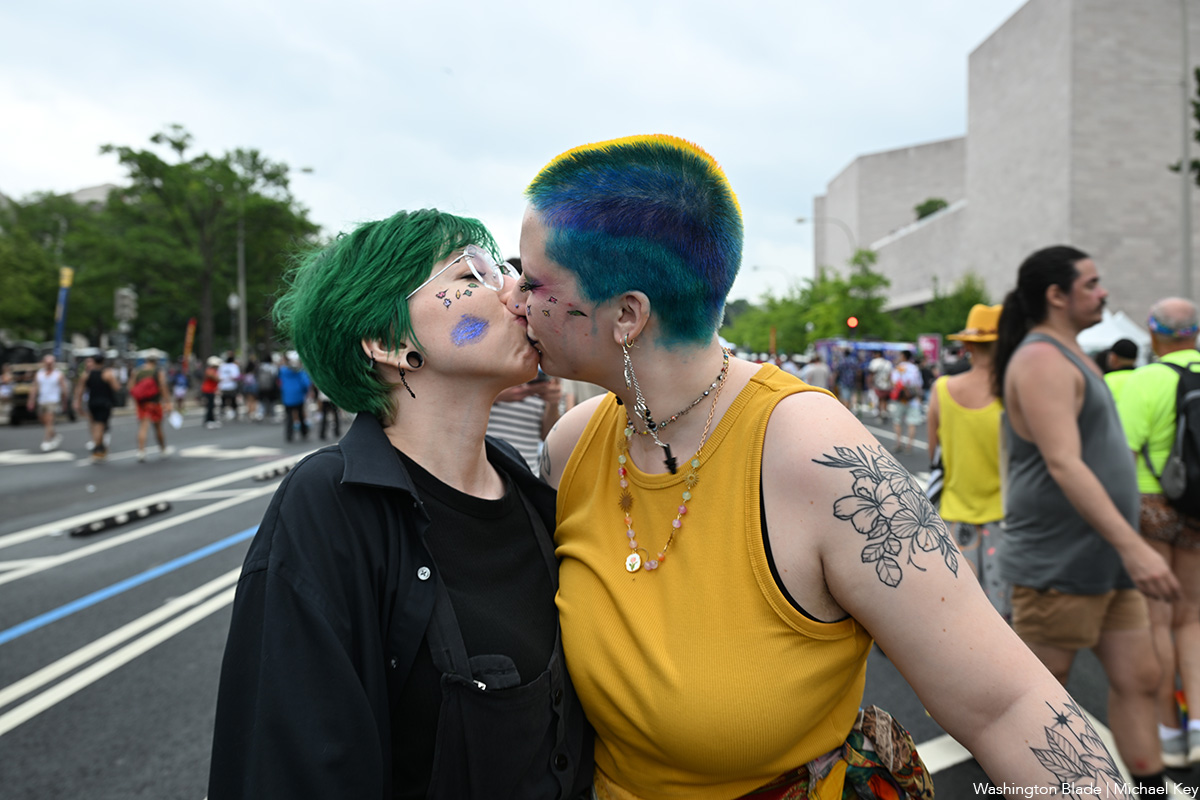
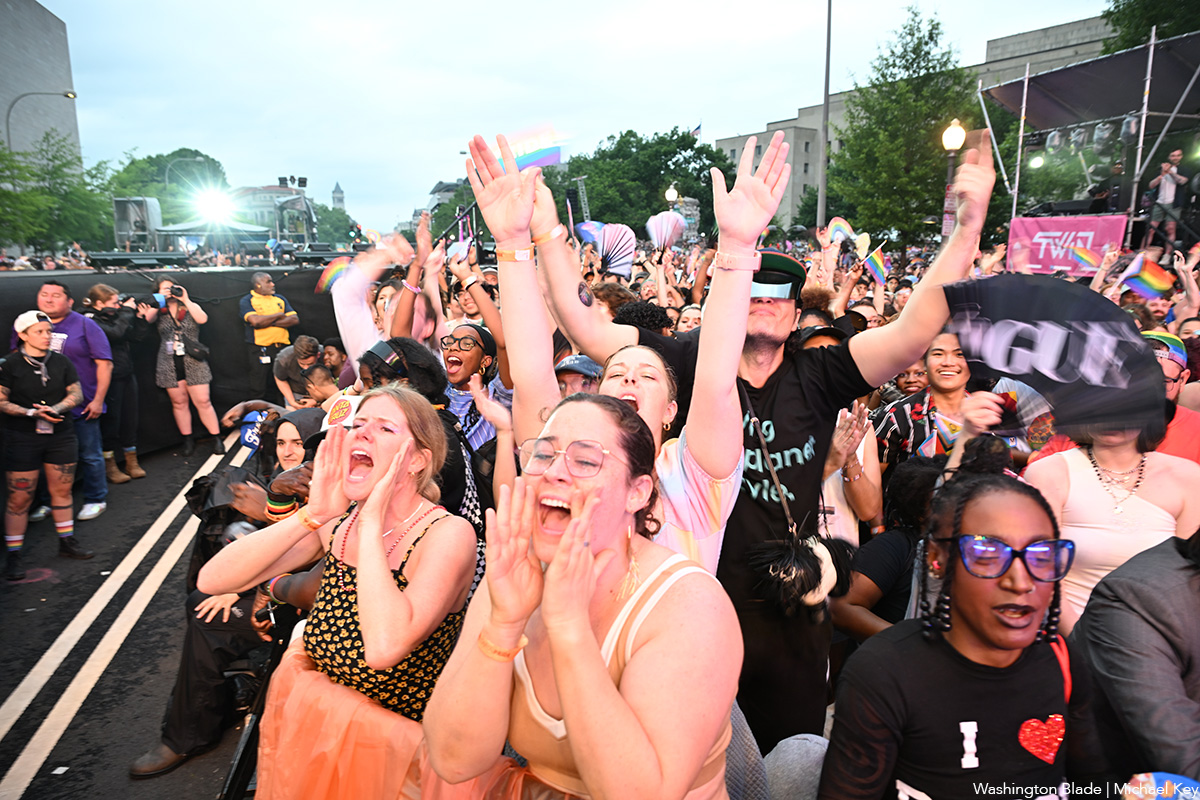


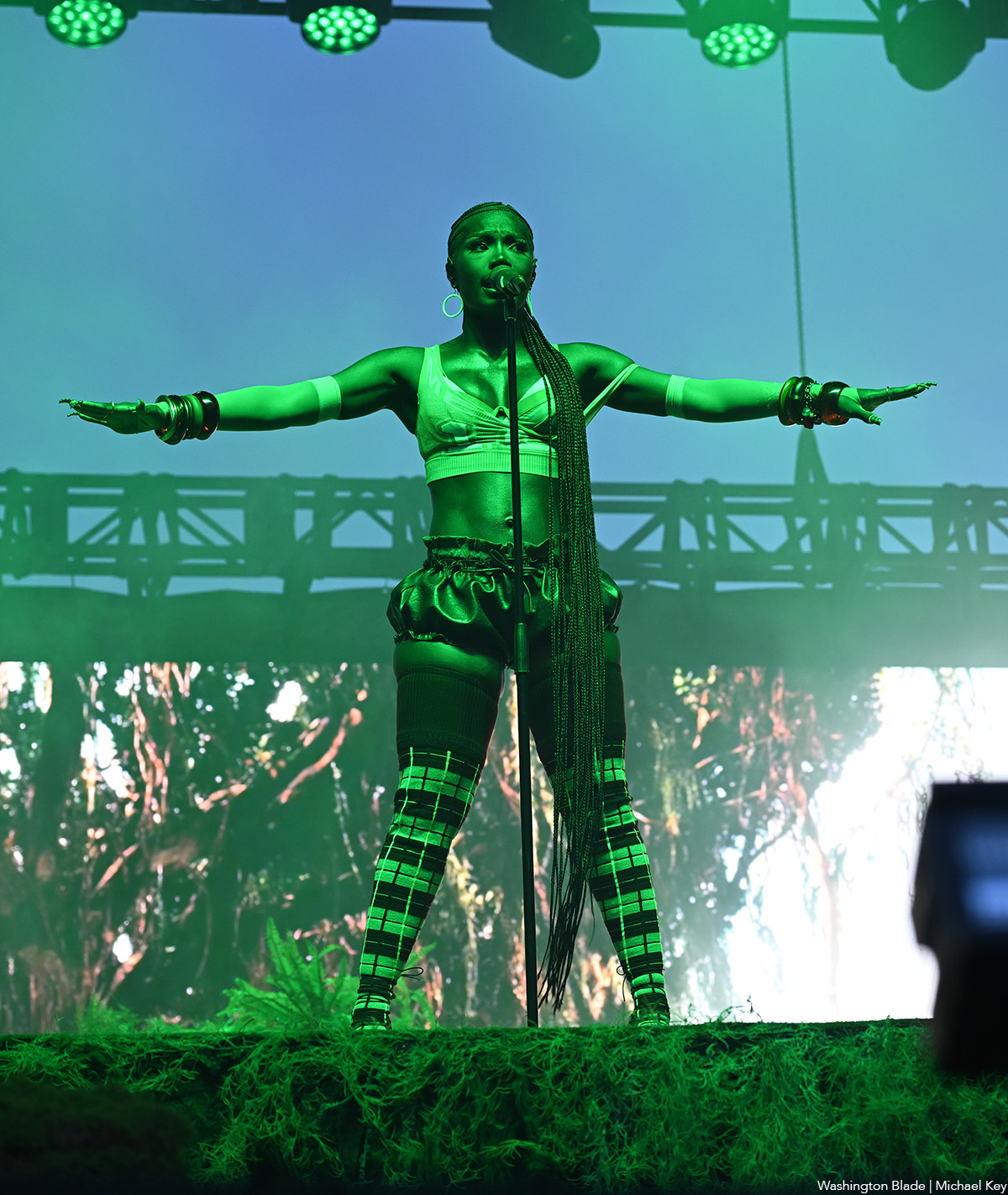

The 2025 WorldPride Parade was held in Washington, D.C. on Saturday, June 7. Laverne Cox and Renée Rapp were the grand marshals.
(Washington Blade photos by Michael Key and Robert Rapanut)

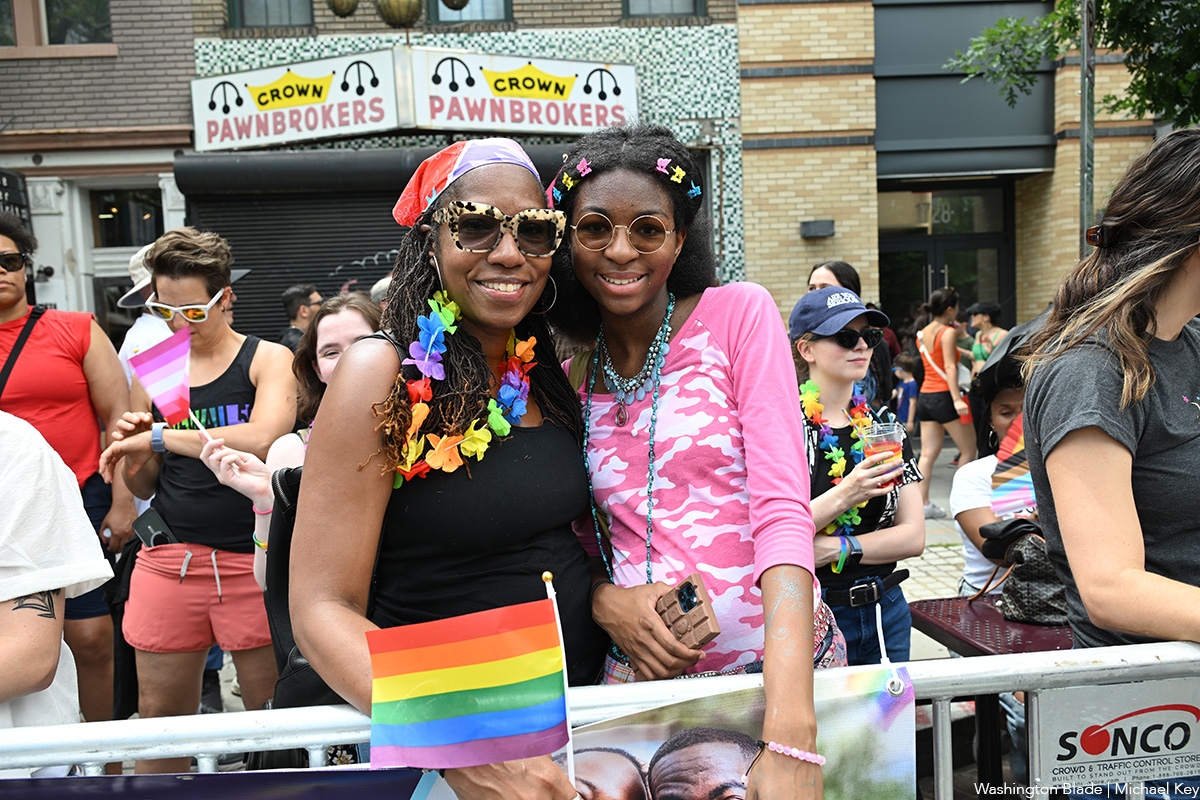

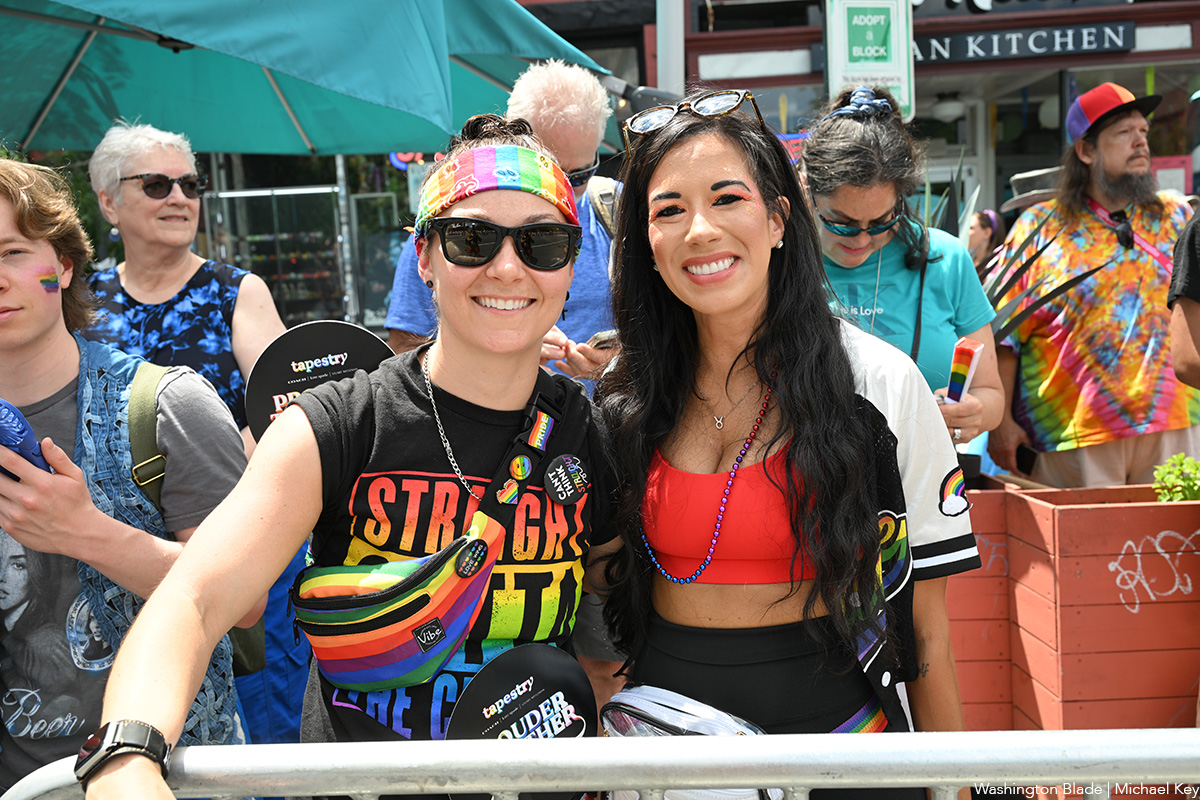

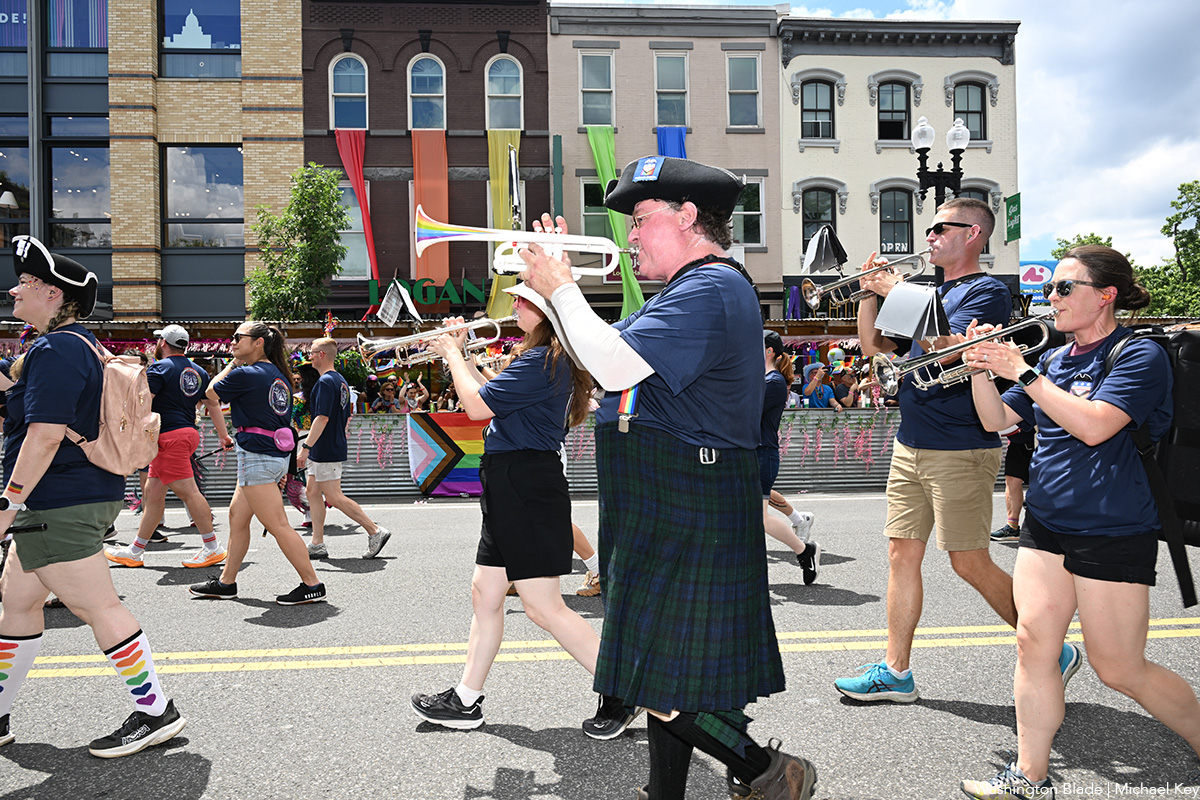




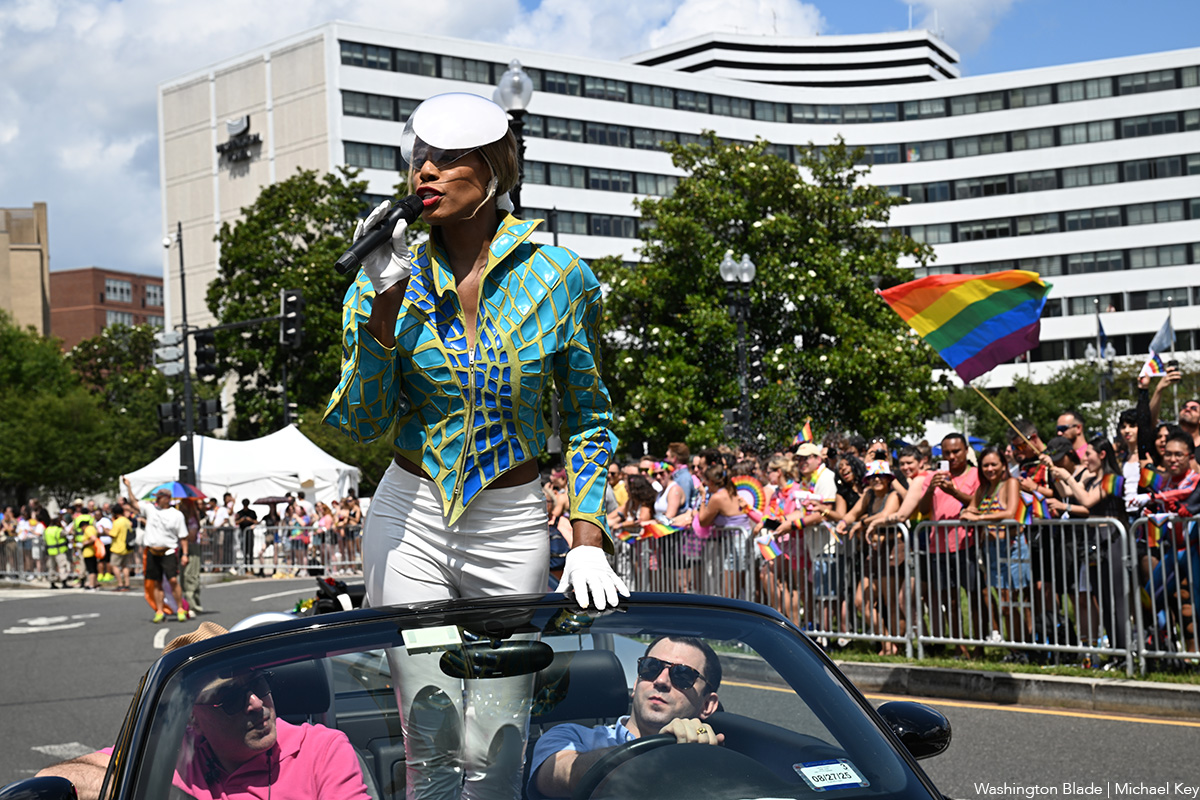



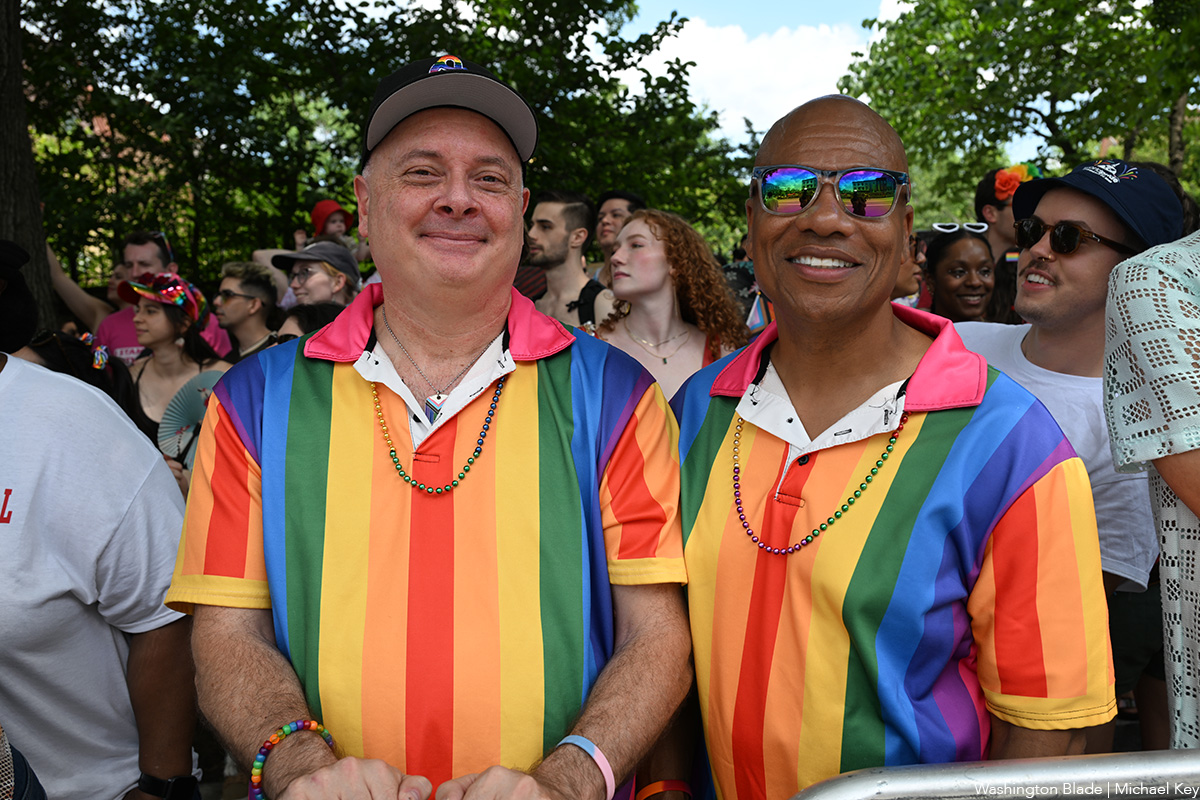
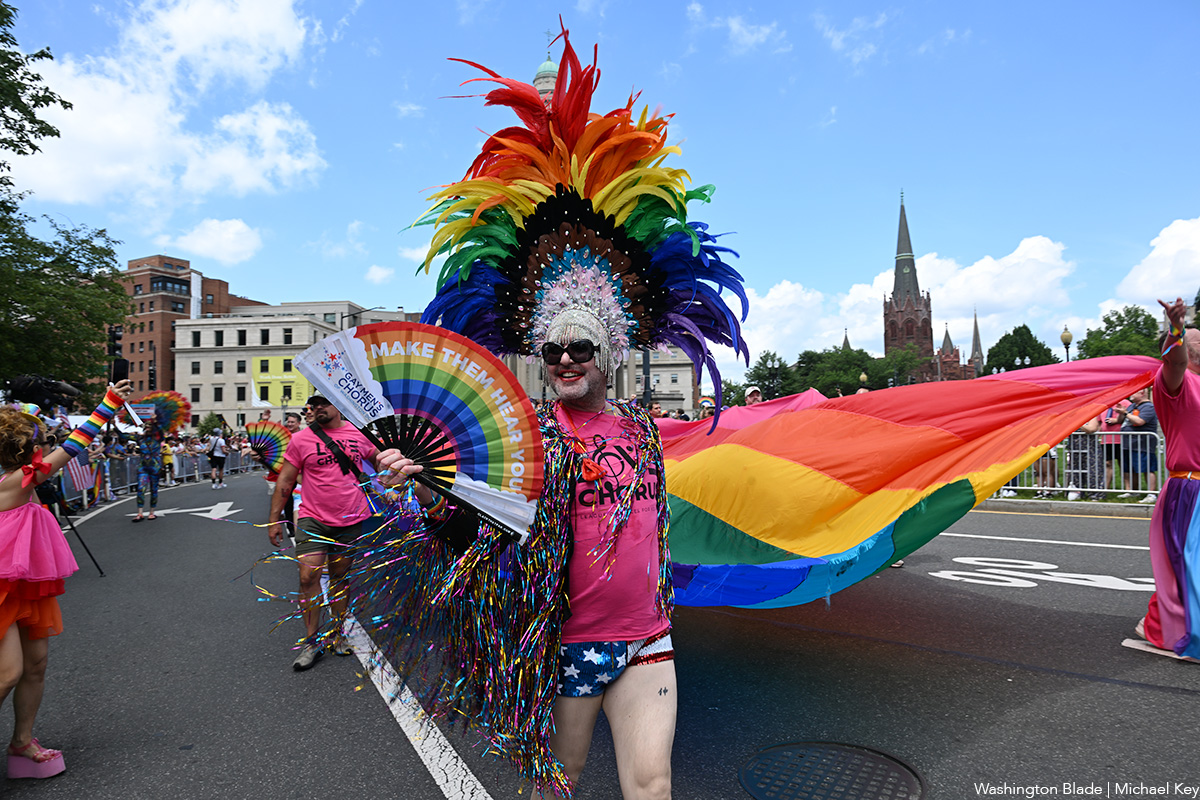


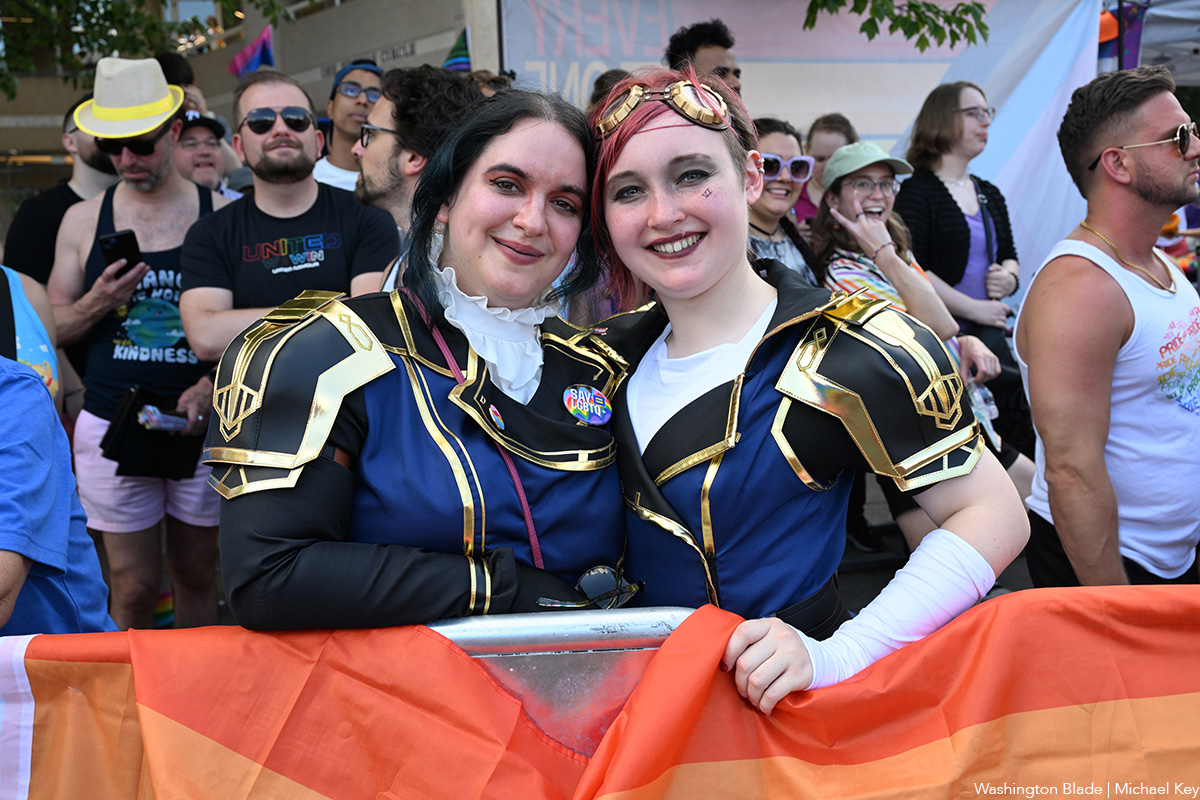




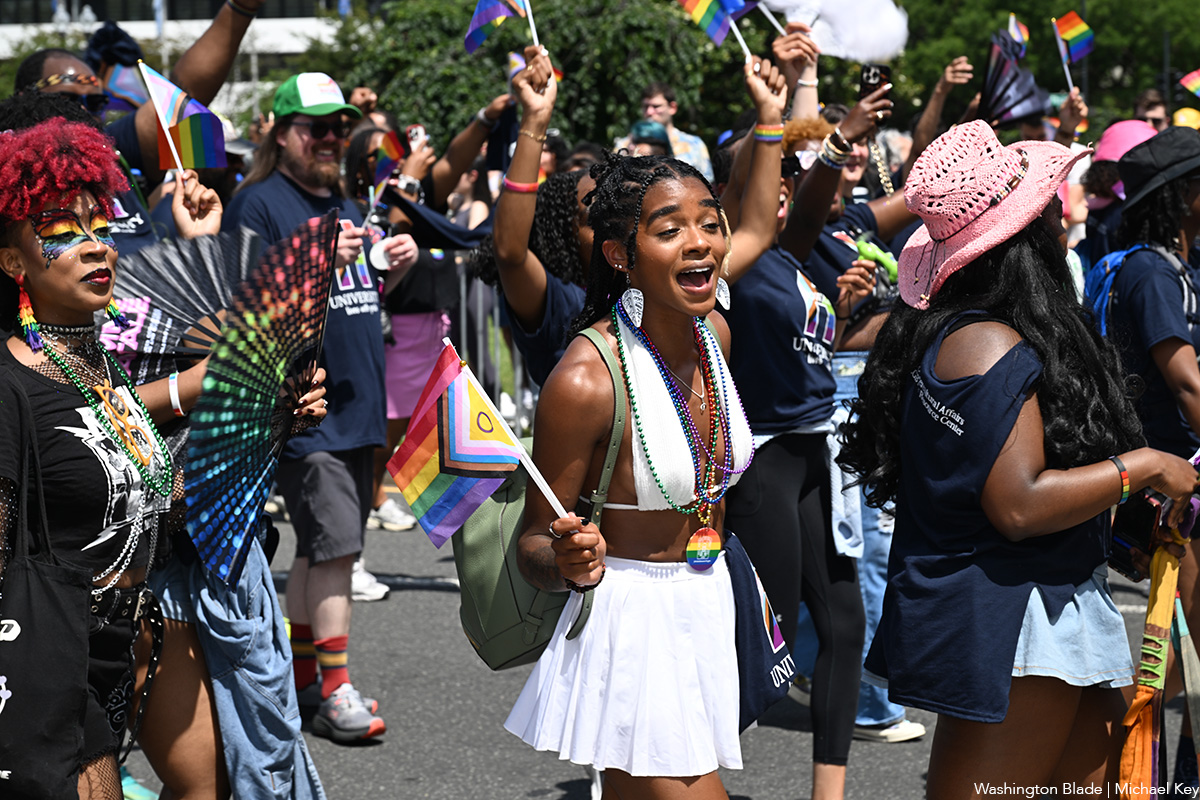
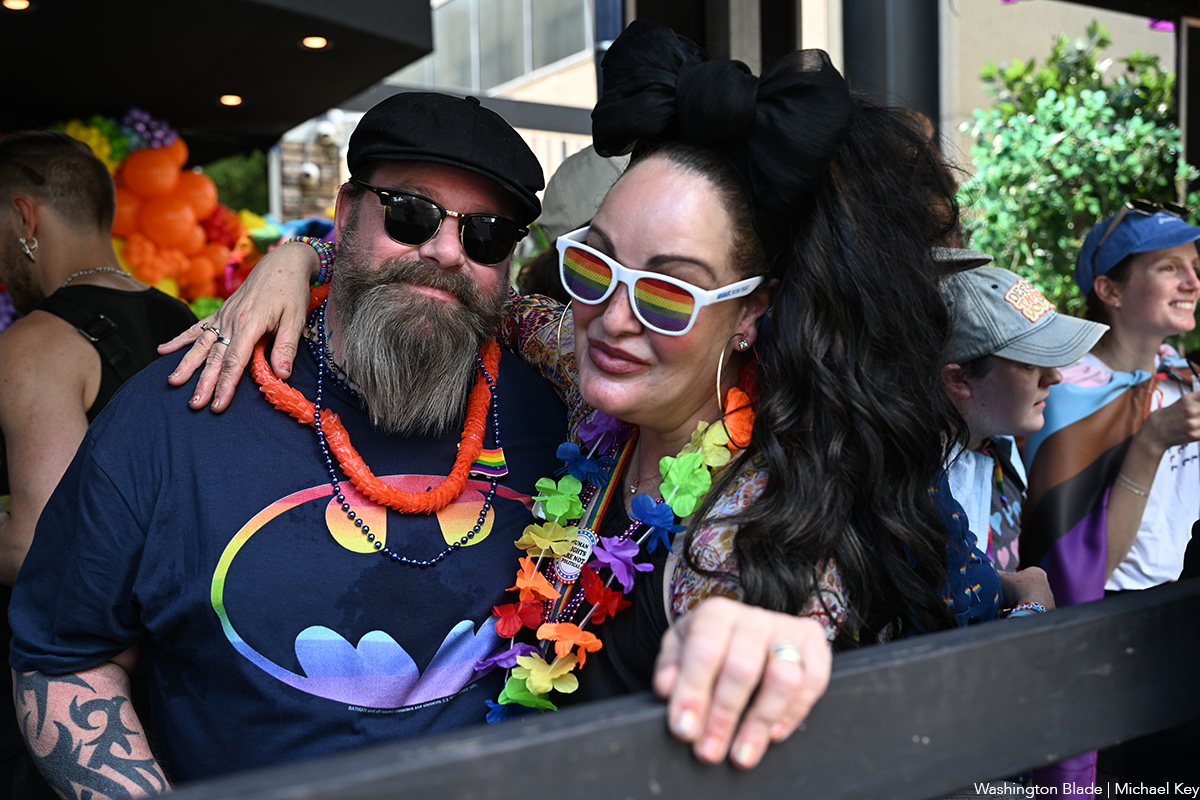

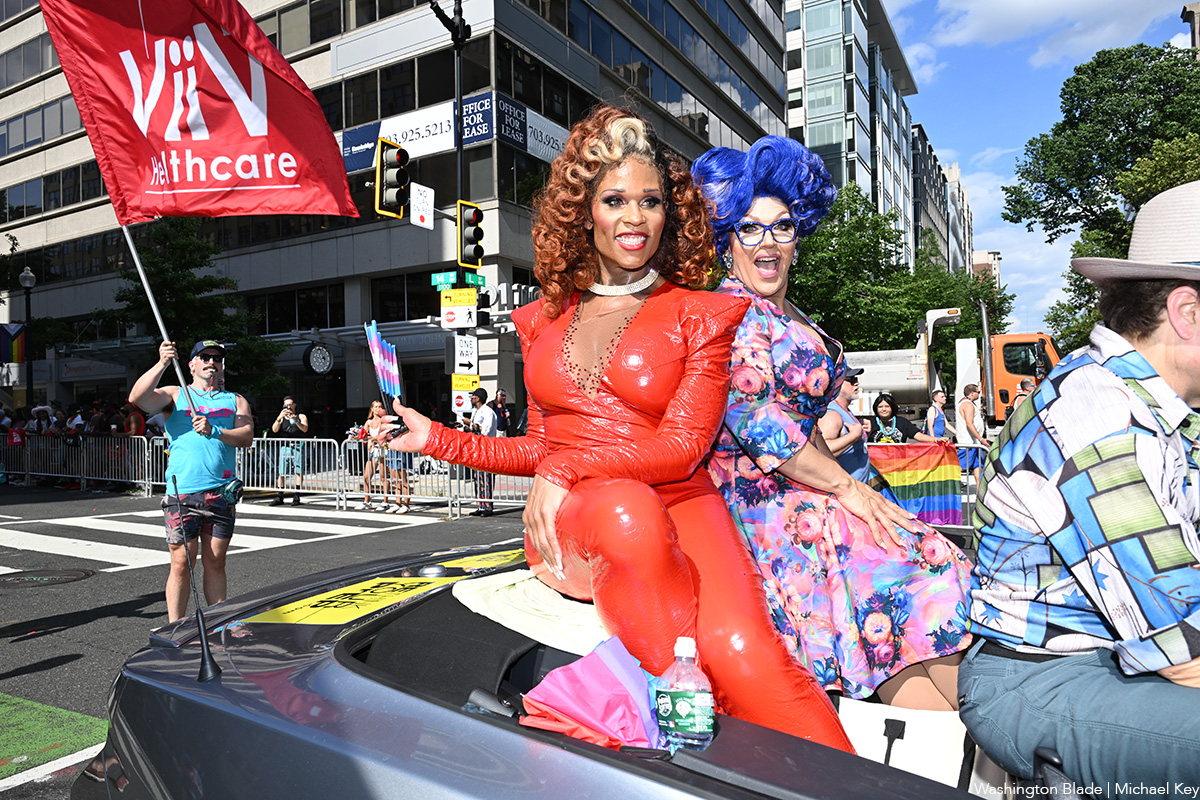
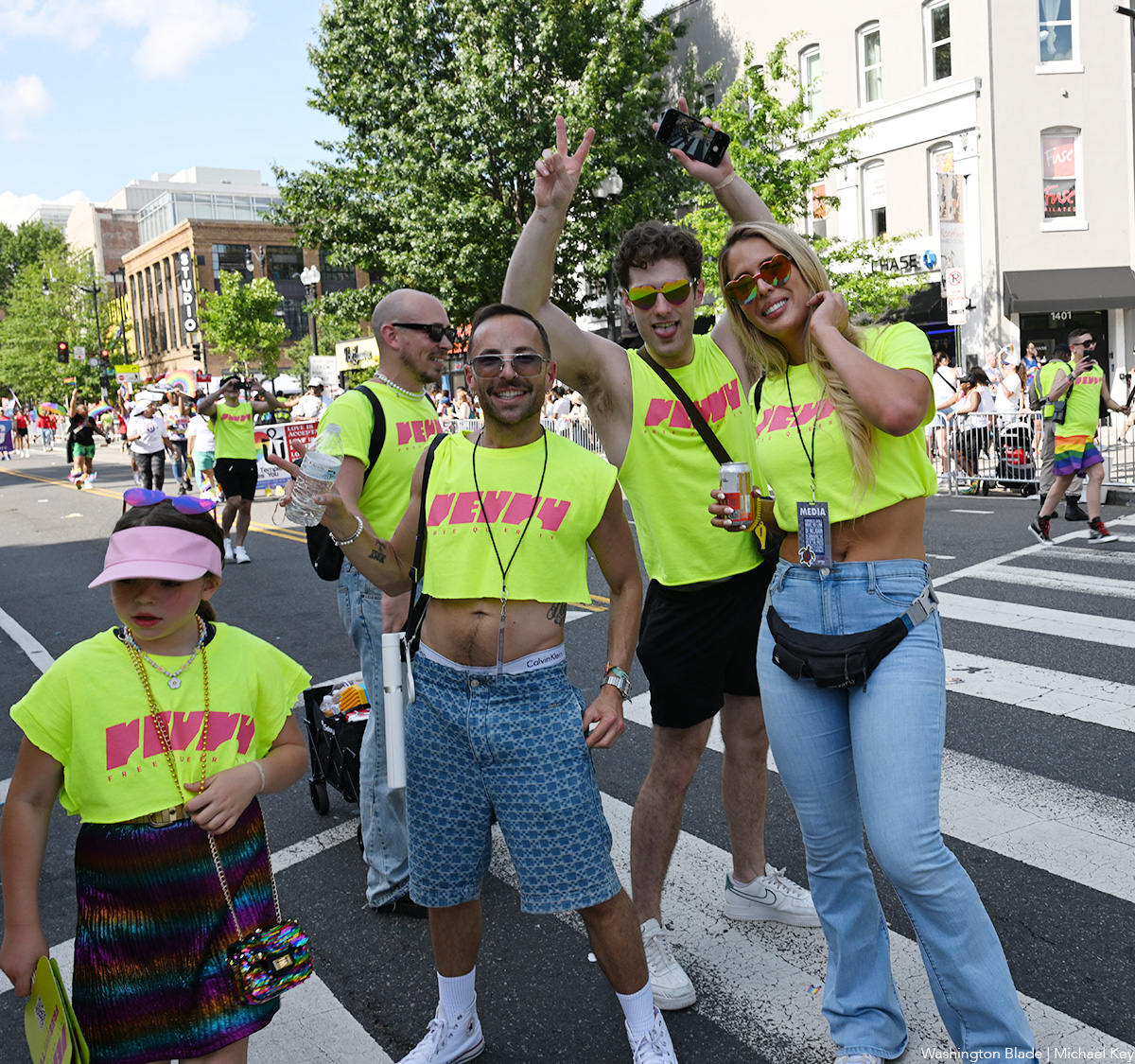
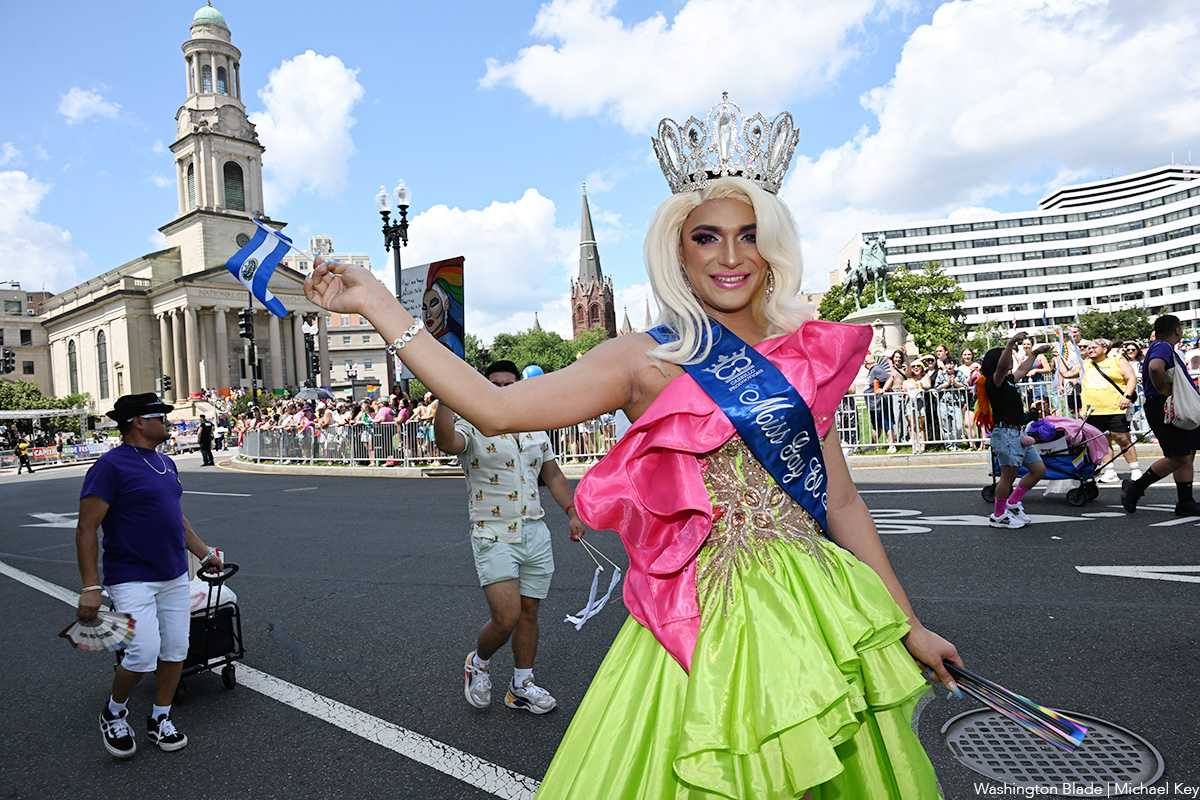

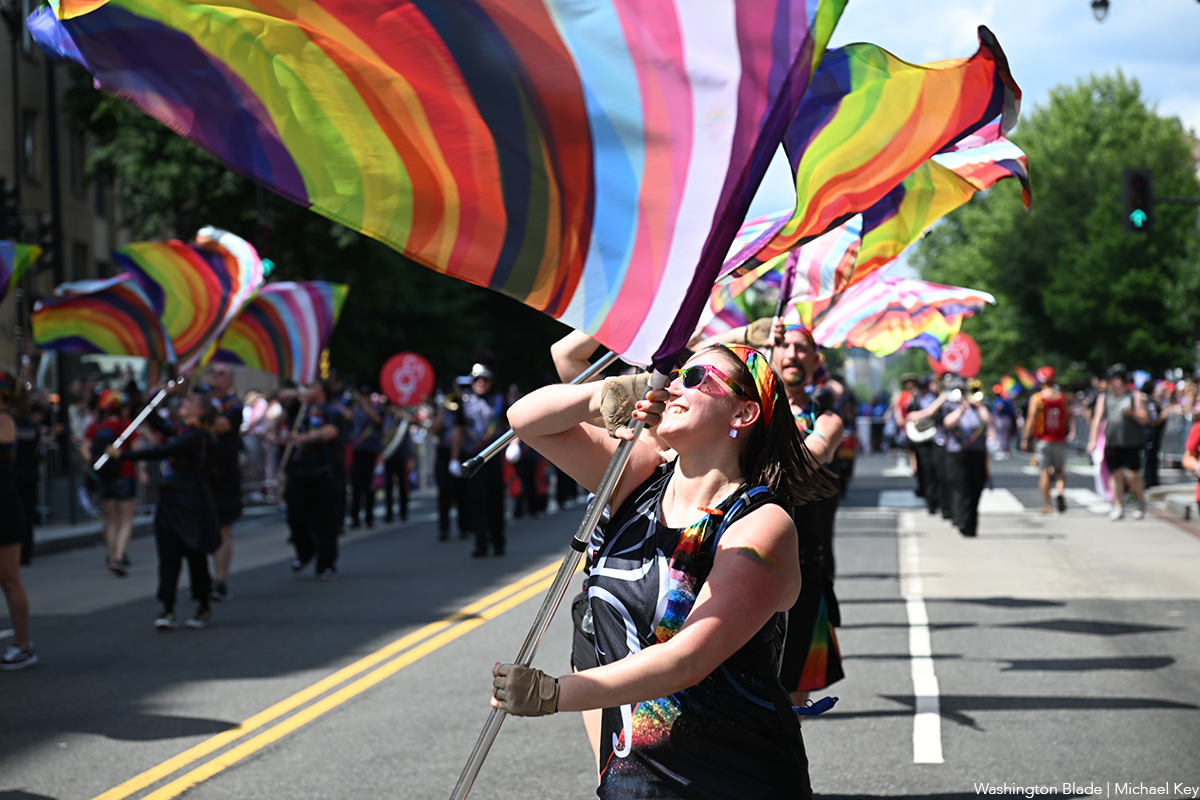

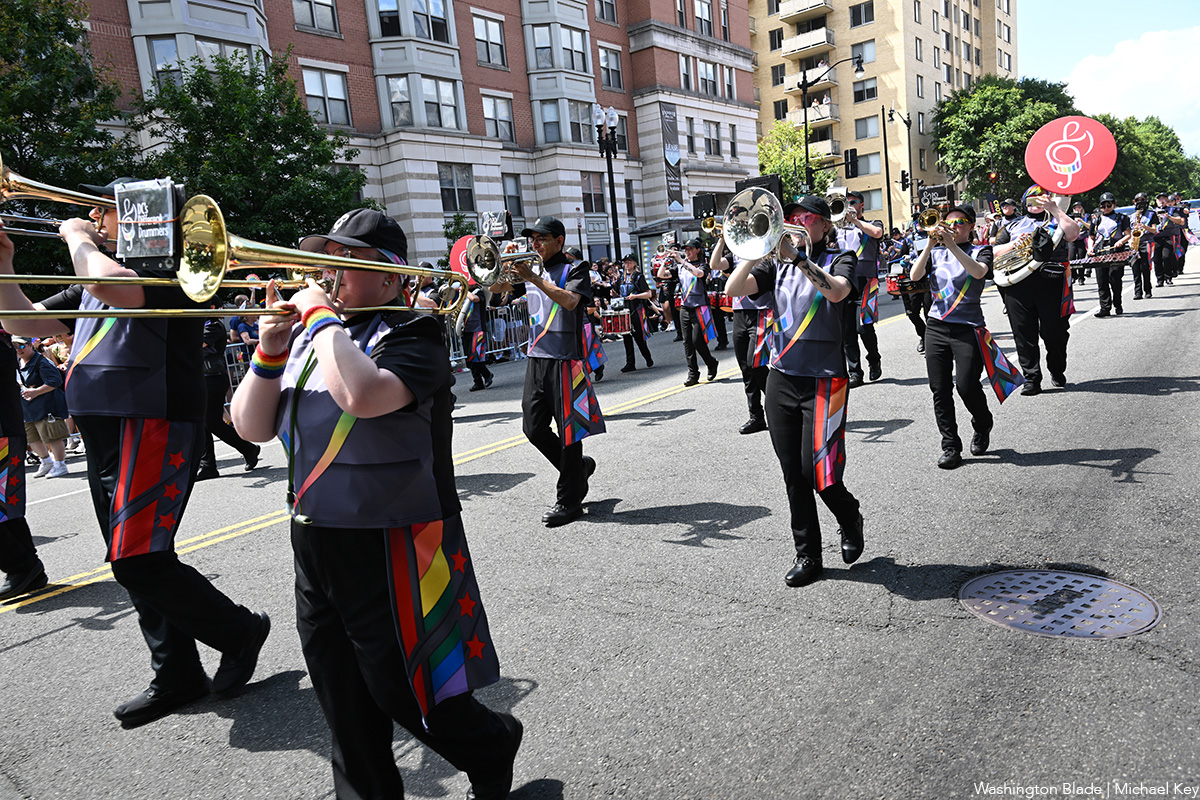


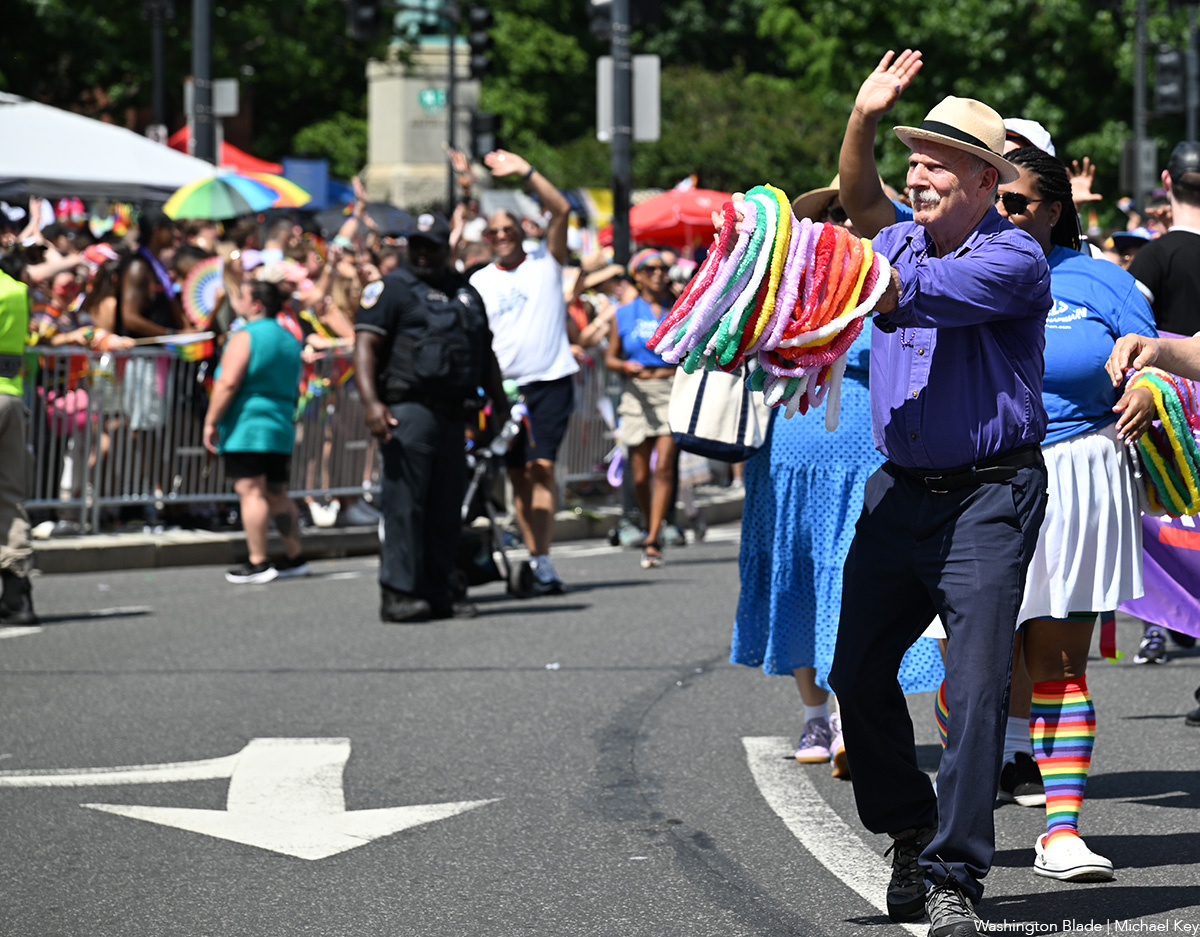
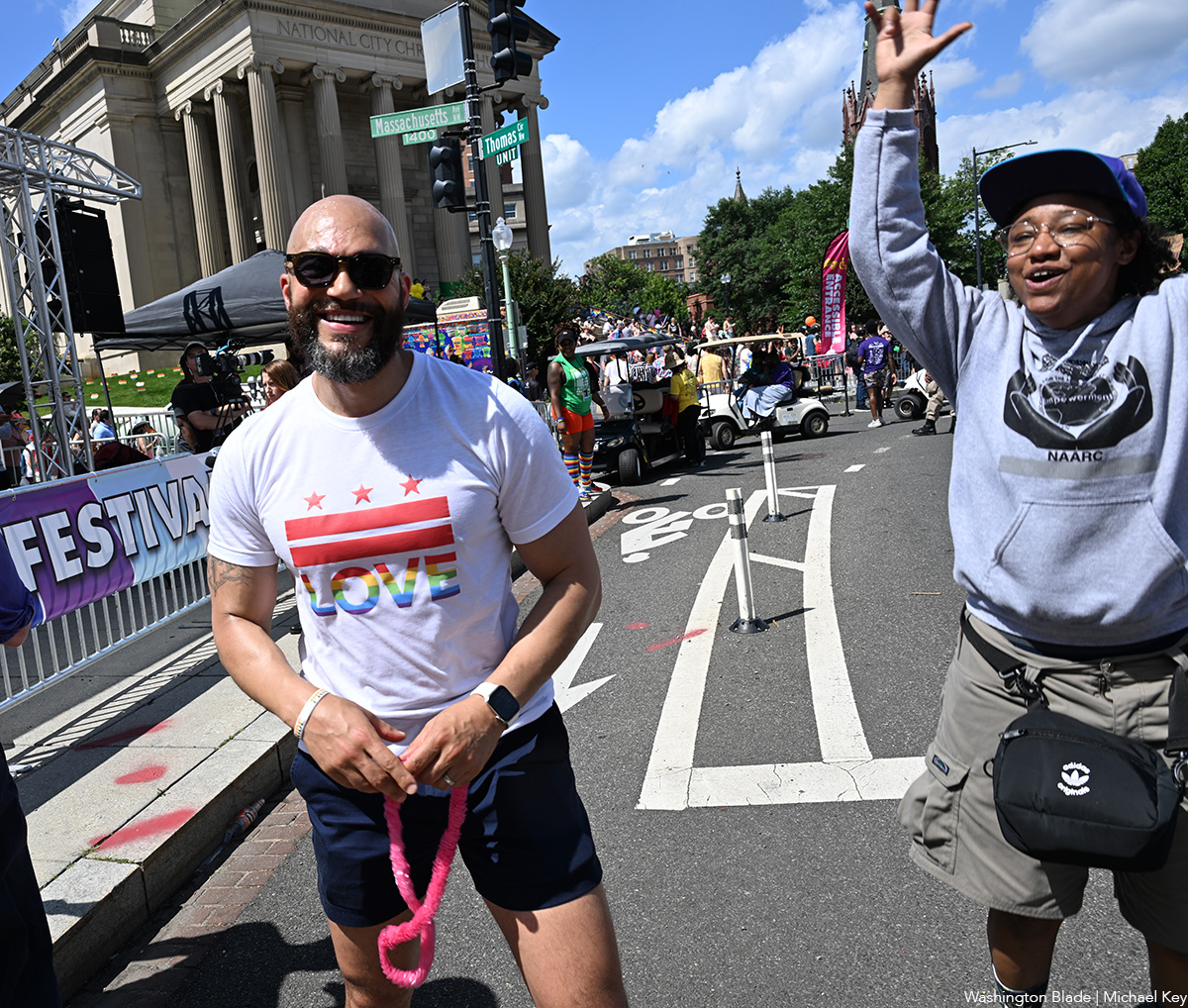

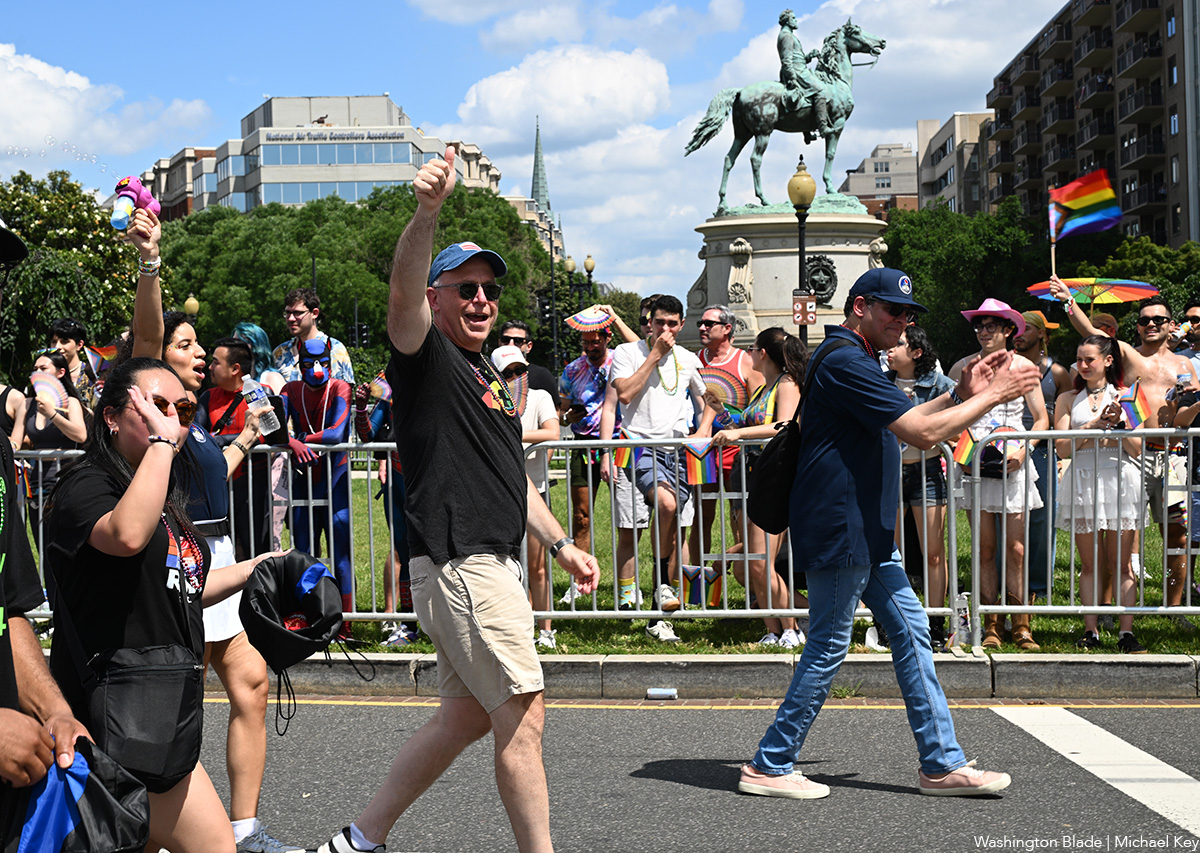
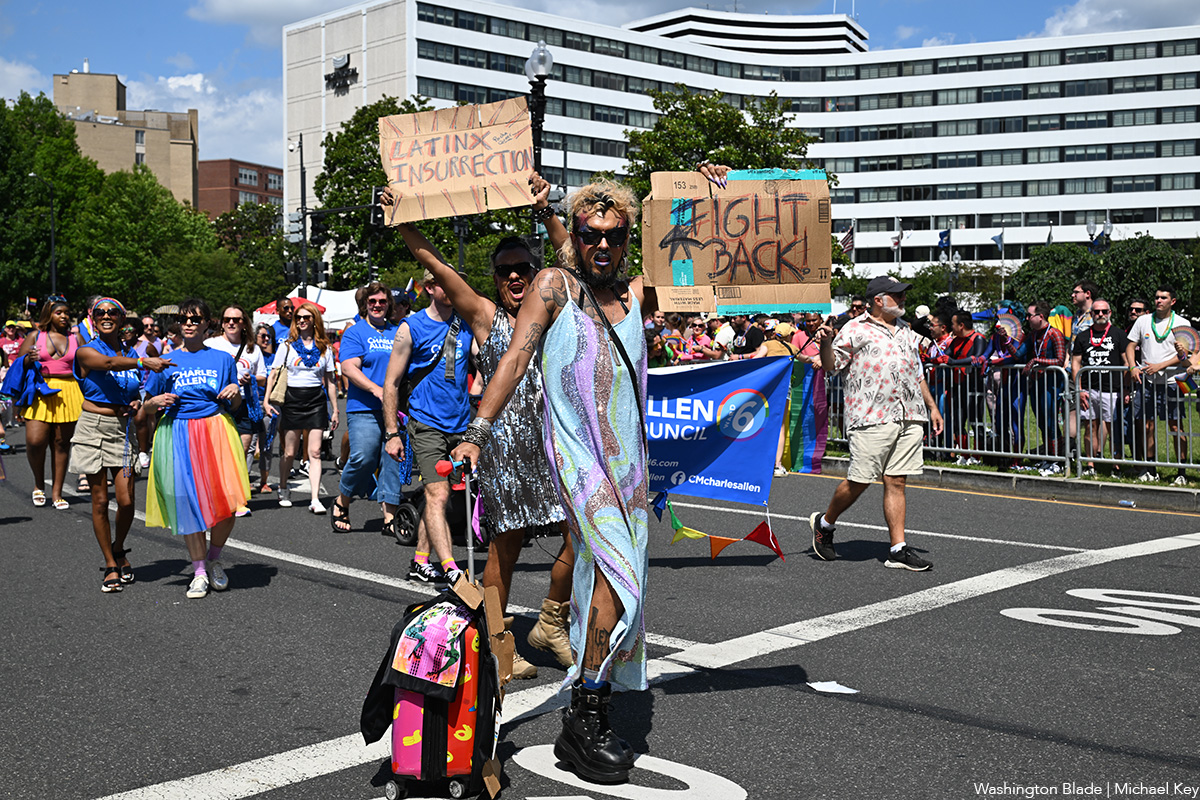
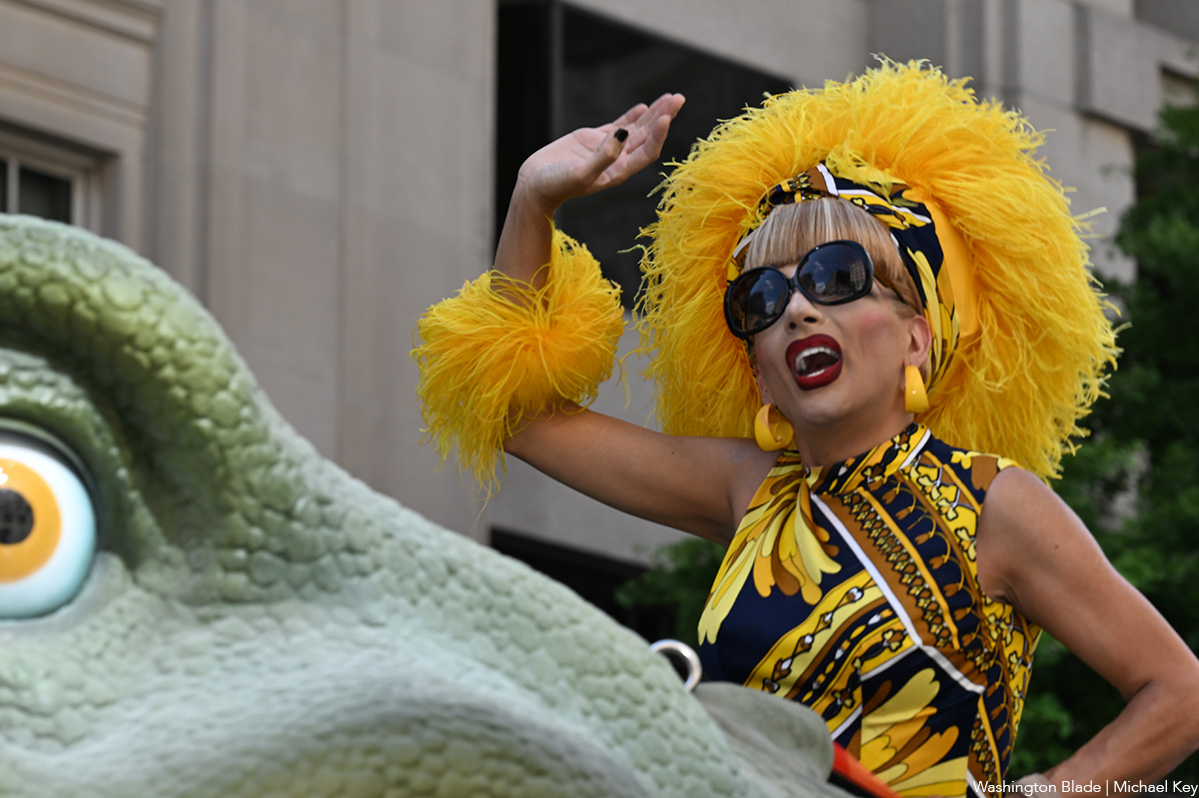
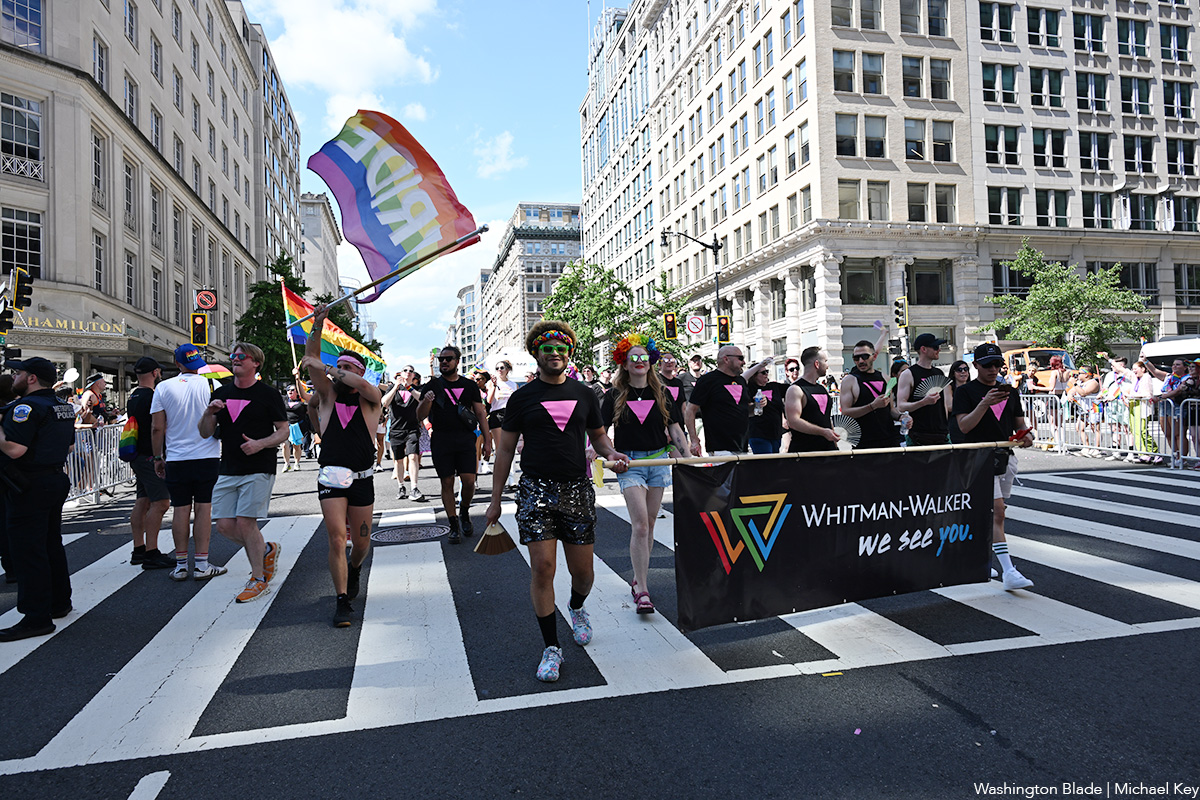

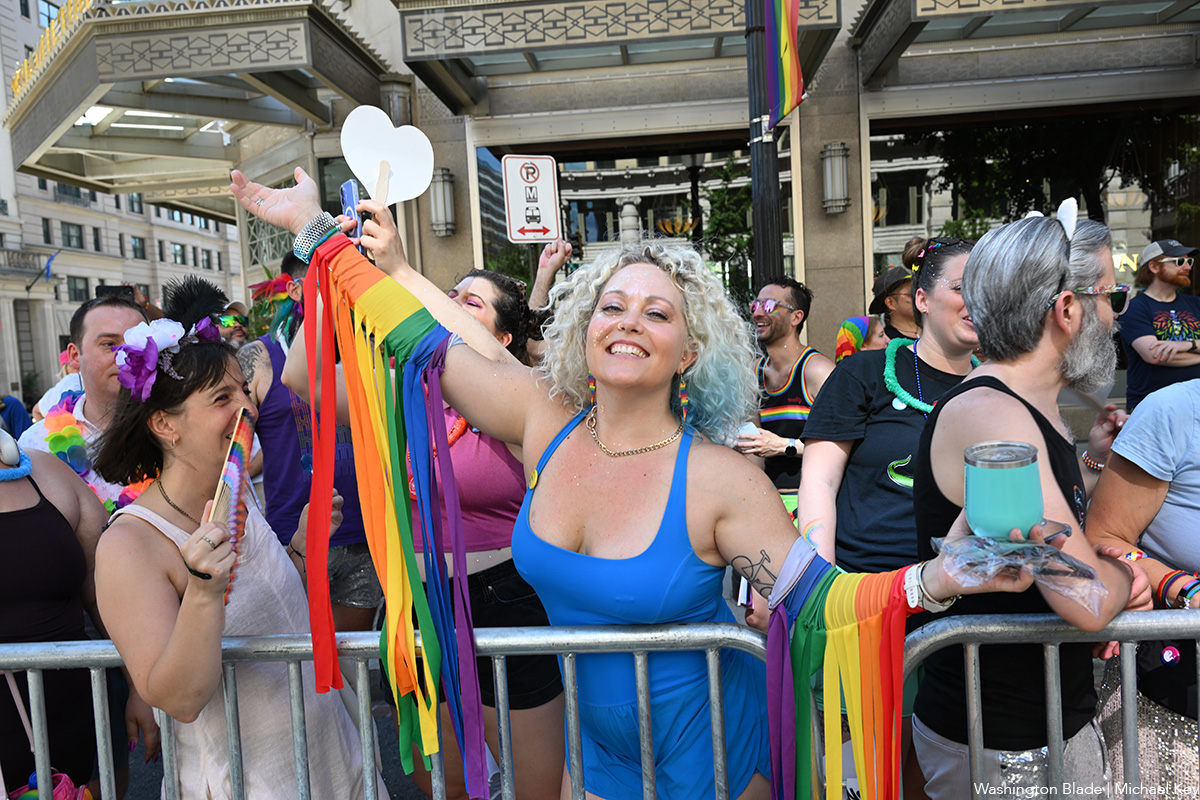
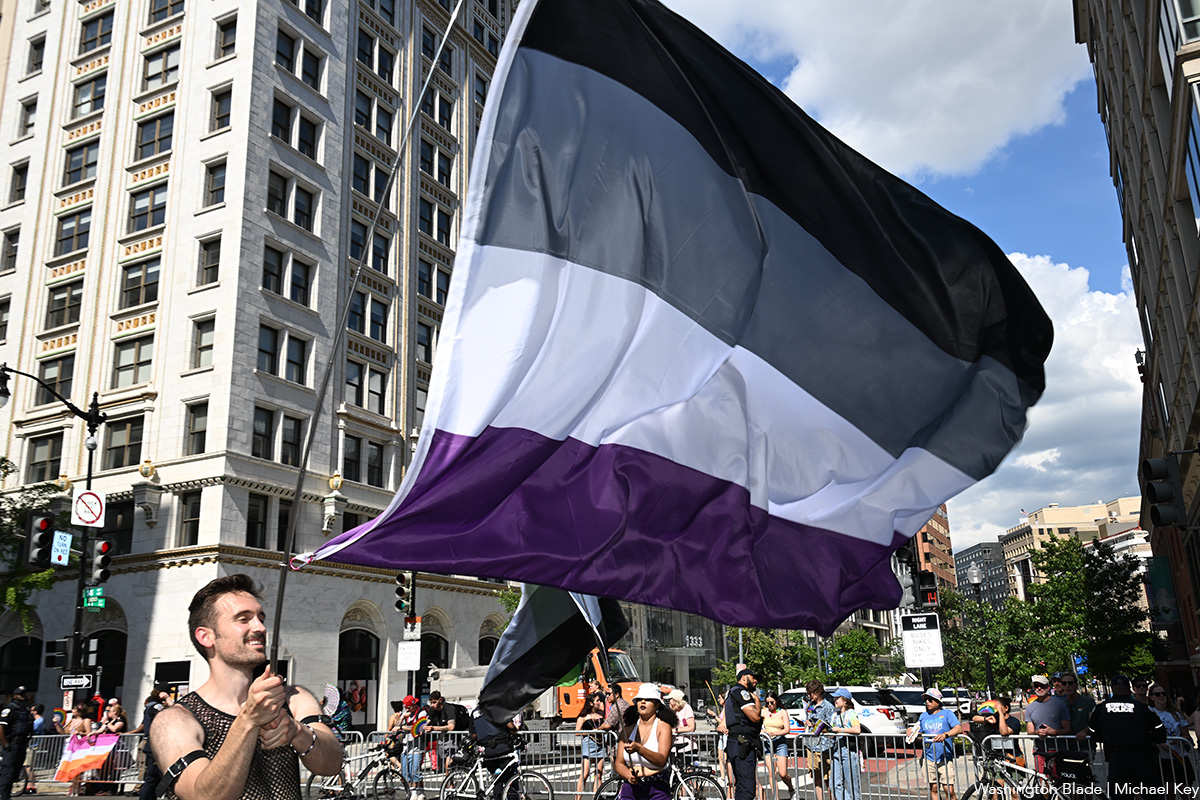
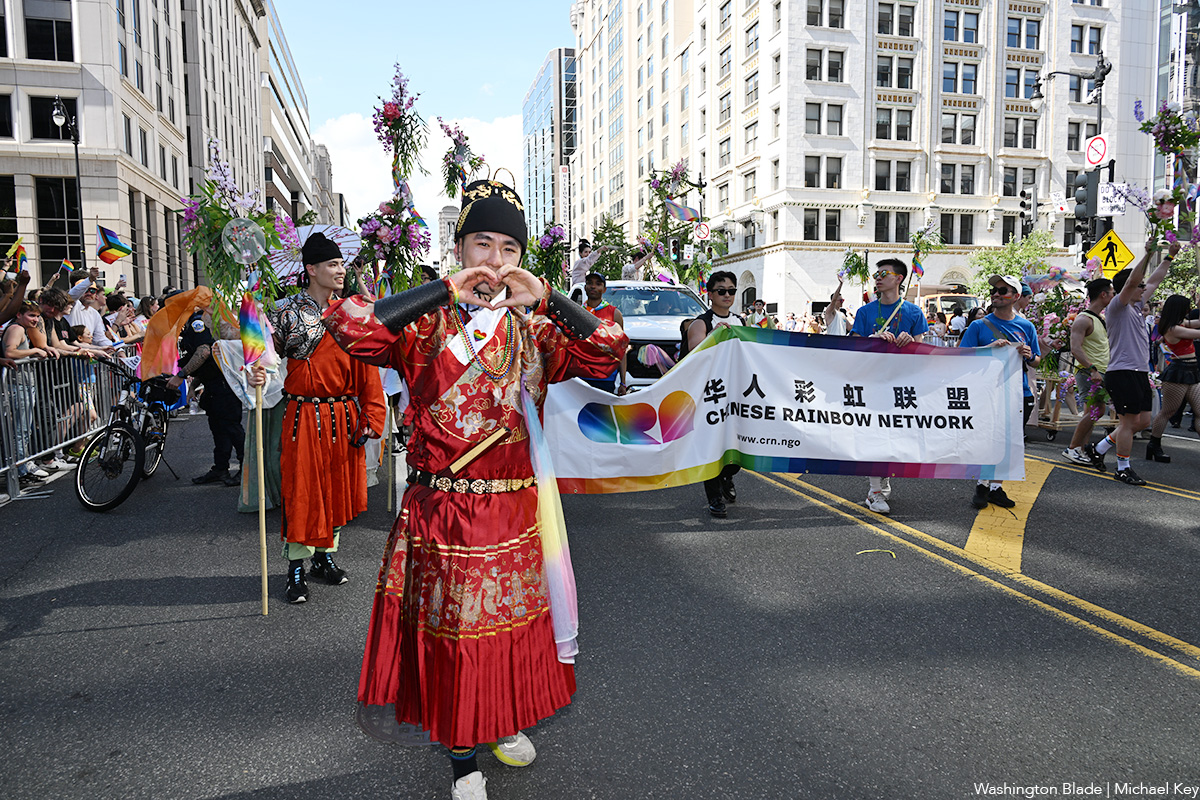
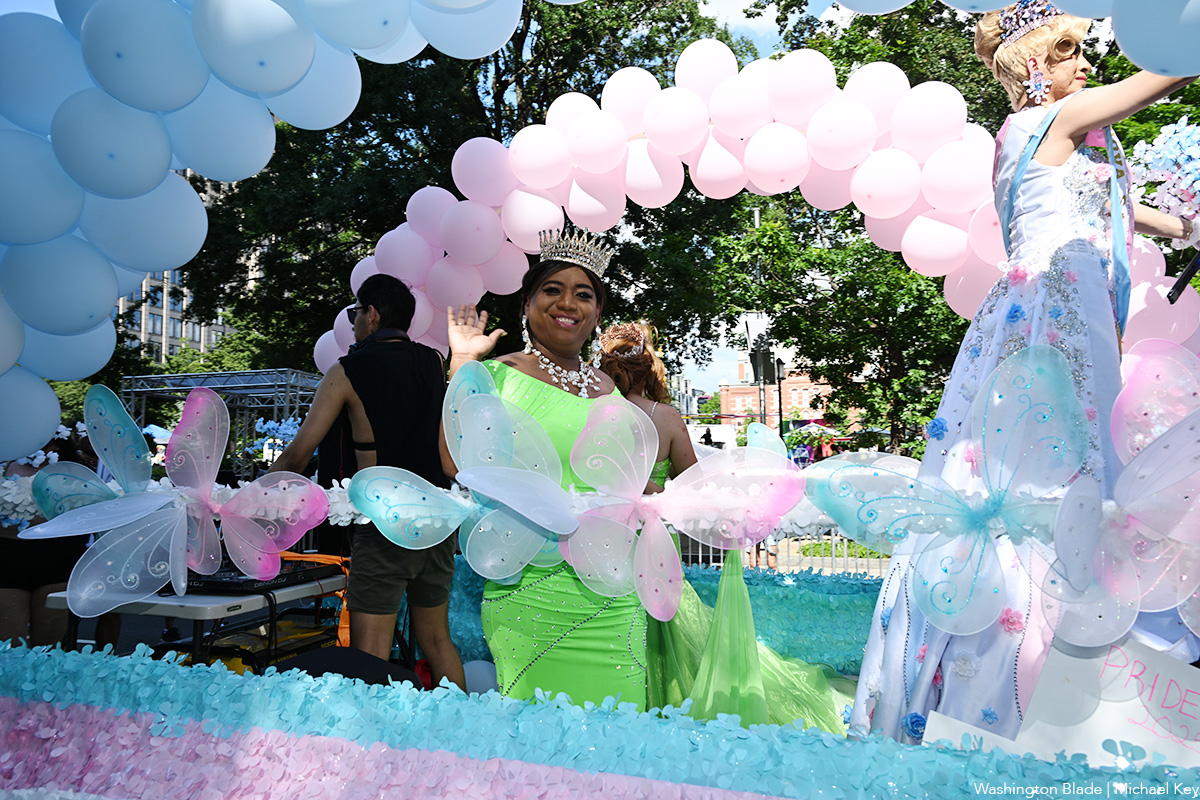

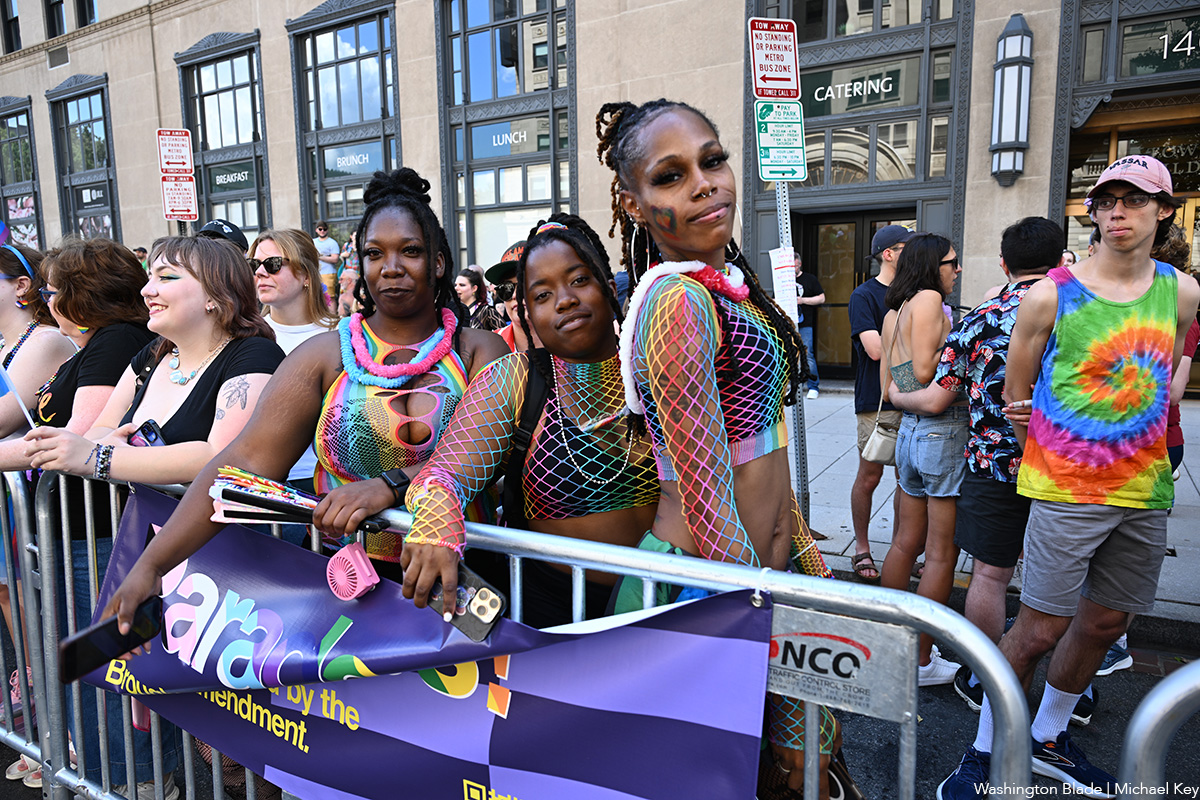


Theater
A hilarious ‘Twelfth Night’ at Folger full of ‘elegant kink’
Nonbinary actor Alyssa Keegan stars as Duke Orsino
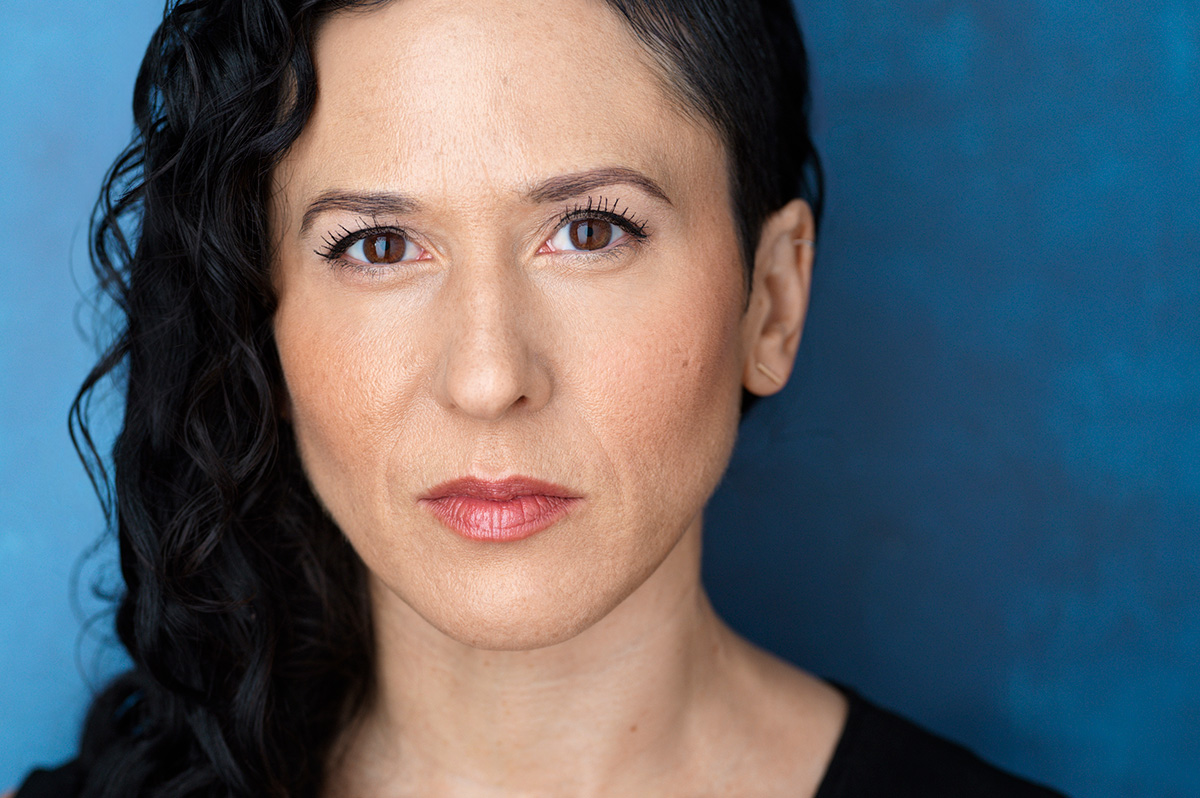
‘Twelfth Night’
Through June 22
Folger Theatre
201 East Capitol St., S.E.
$20-$84
Folger.edu
Nonbinary actor Alyssa Keegan (they/them)loves tapping into the multitudes within.
Currently Keegan plays the melancholic Duke Orsino in Folger Theatre’s production of Shakespeare’s romantic comedy “Twelfth Night.” Director Mei Ann Teo describes the production as “sexy, hilarious, and devastating” and full of “elegant kink.”
Washington-based, Keegan enjoys a busy and celebrated career. Her vast biography includes Come From Away at Ford’s Theatre; Cat on a Hot Tin Roof (Helen Hayes Award, Best Actress) and Paula Vogel’s How I Learned to Drive, both at Round House Theatre; Diana Son’s Stop Kiss directedby Holly Twyford for No Rules Theatre Company; and Contractions at Studio Theatre, to name just a few.
In addition to acting, Keegan works as a polyamory and ethical non-monogamy life and relationship coach, an area of interest that grew out of personal exploration. For them, coaching seems to work hand in hand with acting.
WASHINGTON BLADE: You’re playing the lovesick Orsino in Twelfth Night. How did that come about?
ALYSSA KEEGAN: The director was looking to cast a group of actors with diverse identities; throughout auditions, there were no constraints regarding anyone’s assigned sex at birth. It was really a free for all.
BLADE: What’s your approach to the fetching, cod-piece clad nobleman?
KEEGAN: Offstage I identify as completely nonbinary; I love riding in this neutral middle space. But I also love cosplay. The ability to do that in the play gives me permission to dive completely into maleness.
So, when I made that decision to play Orsino as a bio male, suddenly the part really cracked open for me. I began looking for clues about his thoughts and opinions about things like his past relationships and his decision not to date older women.
Underneath his mask of bravura and sexuality, and his firmness of feelings, he’s quite lonely and has never really felt loved. It makes sense to me why his love for Olivia is so misguided and why he might fall in love with the Cesario/Viola character.
BLADE: As an actor, do you ever risk taking on the feelings of your characters?
KEEGAN: Prior to my mental health education, yes, and that could be toxic for me. I’ve since learned that the nervous system can’t tell the difference between real emotional distress and a that of a fully embodied character.
So, I created and share the Empowered Performer Project. [a holistic approach to performance that emphasizes the mental and emotional well-being of performing artists]. It utilizes somatic tools that help enormously when stepping into a character.
BLADE: Has changing the way you work affected your performances?
KEEGAN: I think I’m much better now. I used to have nearly debilitating stage fright. I’d spend all day dreading going onstage. I thought that was just part of the job. Now, I’ve learned to talk to my body. Prior to a performance, I can now spend my offstage time calmly gardening, working with my mental health clients, or playing with my kid. I’m just present in my life in a different way.
BLADE: Is Orsino your first time playing a male role?
KEEGAN: No. In fact, the very first time I played a male role was at the American Shakespeare Center in Staunton, Va. I played Hipolito in Thomas Middleton’s The Revenger’s Tragedy.
As Hipolito, I felt utterly male in the moment, so much so that I had audience members see me later after the show and they were surprised that I was female. They thought I was a young guy in the role. There’s something very powerful in that.
BLADE: Do you have a favorite part? Male or female?
KEEGAN: That’s tough but I think it’s Maggie the Cat. I played the hyper-female Maggie in Tennessee Williams’ Cat on a Hot Tin Roof at Round House. In the first act she didn’t stop talking for 51 minutes opposite Gregory Wooddell as Brick who barely had to speak. That lift was probably the heaviest I’ve ever been asked to do in acting.
BLADE: What about Folger’s Twelfth Night might be especially appealing to queer audiences?
KEEGAN: First and foremost is presentation. 99% of the cast identify as queer in some way.
The approach to Shakespeare’s text is one of the most bold and playful that I have ever seen. It’s unabashedly queer. The actors are here to celebrate and be loud and colorful and to advocate. It’s a powerful production, especially to do so close to the Capitol building, and that’s not lost on any of us.
-

 Photos5 days ago
Photos5 days agoPHOTOS: WorldPride Boat Parade
-
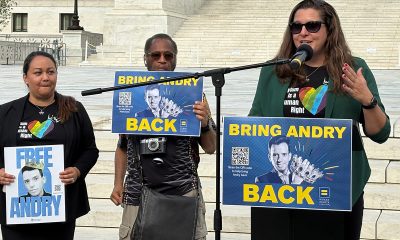
 U.S. Supreme Court5 days ago
U.S. Supreme Court5 days agoActivists rally for Andry Hernández Romero in front of Supreme Court
-

 Real Estate4 days ago
Real Estate4 days agoThe best U.S. cities for LGBTQ homebuyers in 2025
-

 World Pride 20254 days ago
World Pride 20254 days agoLGBTQ voices echo from the Lincoln Memorial at International Rally for Freedom



